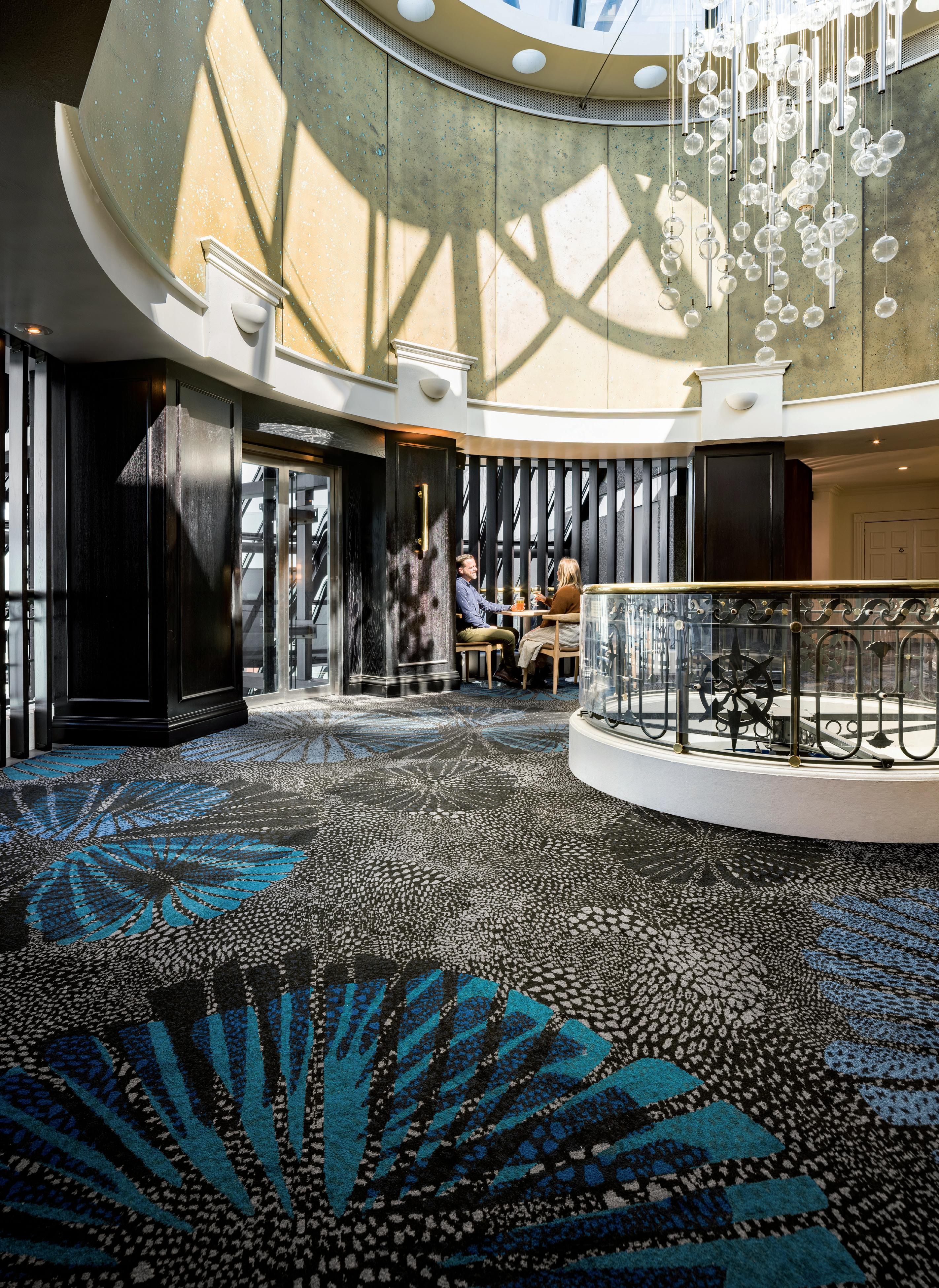




Maintenance is the heartbeat of hospitality. It is not a background task but a direct reflection of your brand’s standards. Guests equate care with cleanliness, and even small lapses can undo the best design or service. A flickering light, a trace of mould in a shower corner, or glassware that looks uncertain quickly erodes trust.
Across a wide range of hotels, even those with four and five stars, the same avoidable problems appear: mould in bathrooms, burnt-out bulbs, drawers left unwiped, and mattresses with stains. None of these faults are expensive to fix; they signal poor systems and a lack of supervision. Housekeeping and maintenance must treat every room as a full inspection, not just a clean. Showers and baths should be checked for mould every time. Mattresses must be lifted and inspected on both sides for stains or damage. Guests notice, and a marked mattress or lingering odour can destroy confidence in hygiene standards.
Small details reassure guests. One hotel placed the TV remote in a sealed bag marked “cleaned and sanitised,” a simple touch that immediately built trust. The same principle applies to sealing bathroom glassware, ensuring lights are all working, and wiping drawers and high-touch surfaces. Consistency is what defines quality. Another frequent mistake is the overuse of strong cleaning scents.

Potent chemical fragrances or air fresheners are often used to disguise underlying problems such as dampness or mould. Guests notice, and rather than reassuring them, it has the opposite effect. Heavy artificial scents suggest a cover-up, and usually they are. A truly clean room should smell neutral, fresh, and unforced.
Ongoing maintenance also protects the business itself. Waiting for problems to become visible is risky and expensive. Regular, scheduled checks prevent minor issues from escalating into major costs, such as damaged fittings, broken fixtures, or out-of-order rooms. A proactive approach not only avoids emergency repairs and lost revenue but keeps operations predictable and efficient.
Clean, well-functioning environments also support staff morale. Employees who work in safe,

PUBLISHER: Tania Walters
ADMINISTRATION MANAGER: Kieran Mitchell
EDITOR-IN-CHIEF: Caitlan Mitchell
HEAD OF CONTENT: Sarah Mitchell
CONTENT MANAGERS: Caroline Boe, Daniel Rogers
EDITORIAL TEAM: Sam Francks, Jenelle Sequeira
SENIOR DESIGNER: Raymund Sarmiento
GRAPHIC DESIGNER: Raymund Santos

well-maintained surroundings take greater pride in their roles and deliver better service. When equipment breaks down or spaces feel neglected, frustration and inefficiency follow. Finally, a disciplined maintenance programme extends the lifespan of assets and strengthens brand reputation. Guests remember the care they can see and notice the neglect they cannot ignore. Regular inspections, logged repairs, and visible attention to detail transform maintenance from a chore into a competitive advantage.
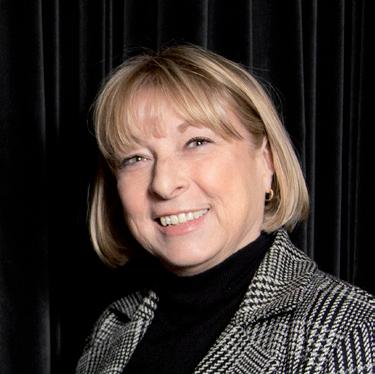




















Prime Minister Christopher Luxon has announced significant investment in New Zealand's tourism while visiting Malaysia. Two significant investments were announced during the visit of Prime Minister Christopher Luxon to Malaysia this week, in the areas of renewable energy infrastructure and tourism.
CLICK TO READ MORE
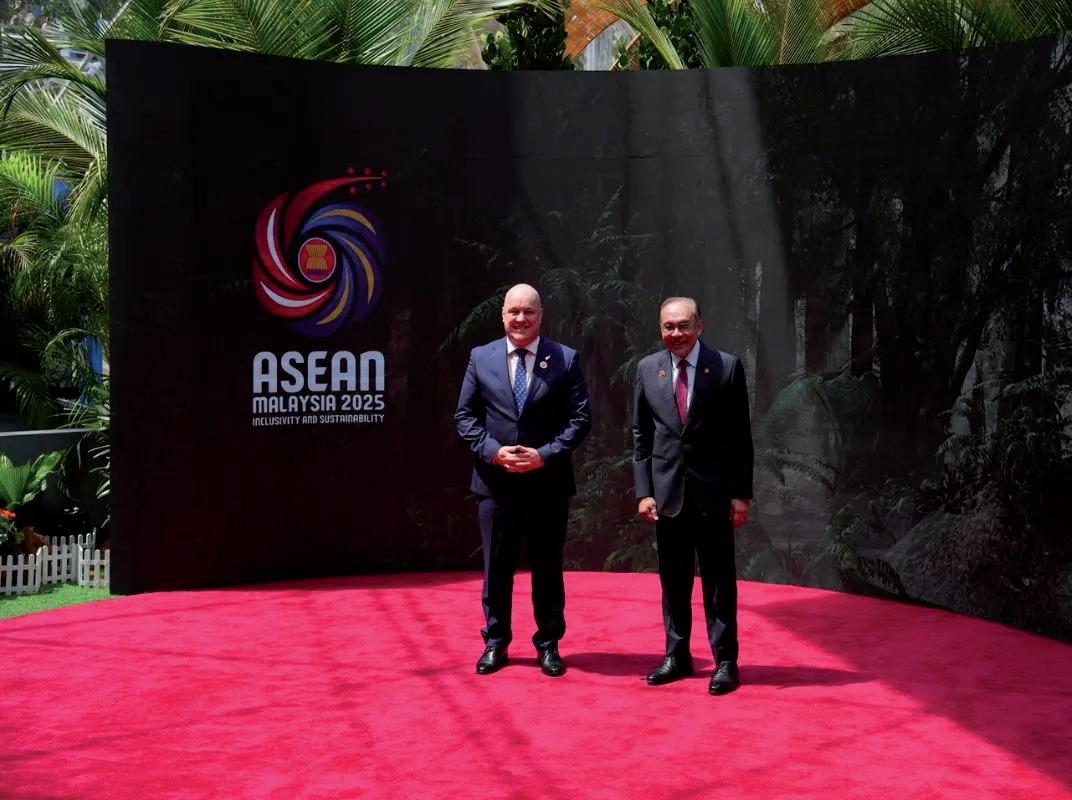
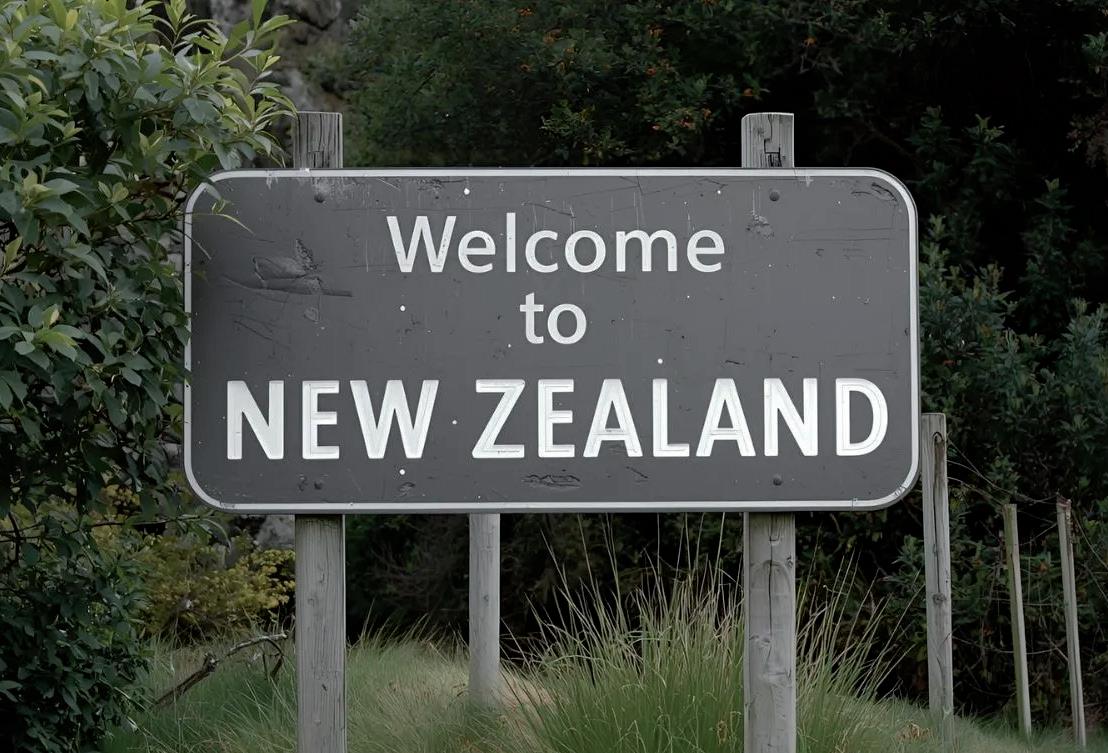
Tourism arrivals continue to grow modestly, with 2.2 percent growth in August, following 2.7 percent growth in July, all on a monthly seasonally adjusted basis. August arrivals represent 92 percent of August 2019 (prepandemic) levels, up from 85 percent in August 2024, demonstrating a slow but steady tourism recovery. Arrivals over the year to August 2025 were 5.5 percent higher than the year to August 2024.
CLICK TO READ MORE

The local cruise industry will bring more visitors, more money, more investment, and more growth to New Zealand.
Tourism and Hospitality Minister Louise Upston said the cruise industry is poised for another significant step forward, with the Carnival line announcing a return to homeporting in Auckland.
CLICK TO READ MORE



Cordis, Auckland has been recognised at the 2025 World Travel Awards, with wins in three categories: Oceania's Leading Executive Club Lounge, Oceania's Leading Hotel Suite for its Chairman Suite, and New Zealand's Leading Business Hotel.
CLICK TO READ MORE
Air New Zealand's new direct route from Christchurch to Adelaide has been described as a major win for both cities.
Christchurch Airport celebrated the arrival of Air New Zealand’s inaugural flight from Adelaide today, marking a new chapter in connectivity between the South Island and South Australia.
The flight was welcomed with a kapa haka performance and a ceremony attended by Christchurch Airport Chief Executive Justin Watson, Air New Zealand General Manager Short Haul Lucy Hall, and Christchurch Mayor Phil Mauger.
CLICK TO READ MORE

A first look at Hannah St Hotel’s immersive approach shows how culture-driven design, art, and local engagement are shaping the next wave of luxury hospitality in the city.
CLICK TO READ MORE

Redefine the comfort of your guests with Slumberzone beds.


Premium Auckland CBD Hotel-Apartment Investment Opportunity Hits the Market
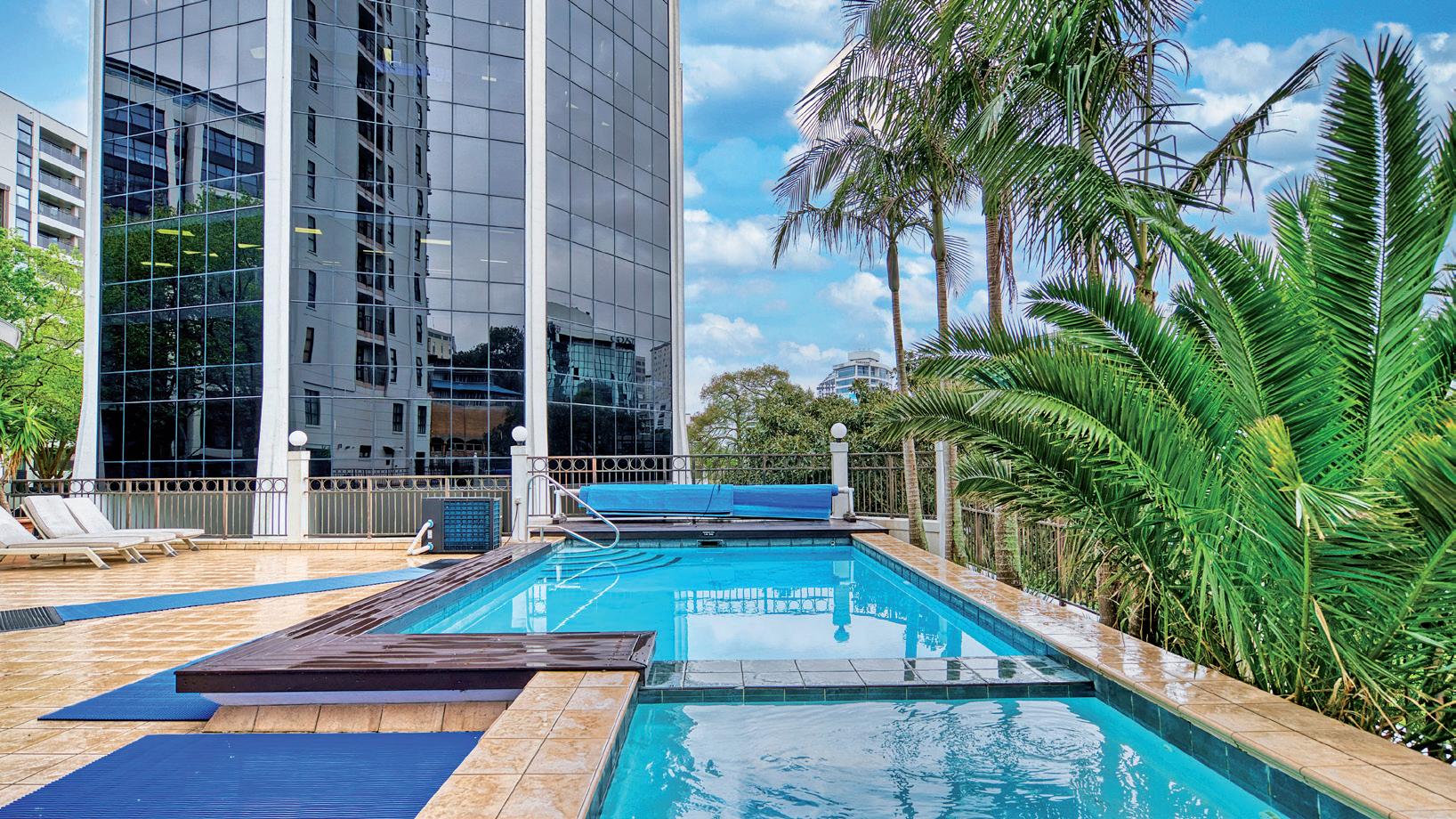

JLL Hotels & Hospitality has announced the exclusive sale of Auckland Parkside Hotel & Apartments.
The asset presents a premium apartment-style hotel with a prime Grey's Avenue location offering sweeping views over Myers Park in Auckland's central business district
"Auckland Parkside Hotel & Apartments represents a compelling investment opportunity for investors seeking a premium, well-established hospitality asset with prime positioning and strong operational fundamentals," said Nick Thompson, Executive Vice President of JLL Hotels & Hospitality.
"This property offers multiple revenue sources, including guest


accommodations, large-scale conferences and events, secure parking, and restaurant with private bar, providing income diversification and reduced operational risk.”
Auckland Parkside Hotel & Apartments comprises 170 apartments, with 98 currently available for acquisition. This number is anticipated to increase to 100 throughout the marketing campaign as additional owners consider divestment opportunities.
Parkside's apartment-style suites provide guests with spacious accommodation across various room types, including deluxe studios, family suites, spa suites, executive rooms,
and penthouses. Leisure amenities feature a fitness centre with park views, an outdoor heated swimming pool, and hot tub.
Catering to both corporate and leisure travellers, Auckland Parkside Hotel & Apartments features purposebuilt, naturally lit conference and event spaces with capacity ranging from intimate 10-person boardroom settings to 150-person theatre-style setups.
An on-site restaurant with seating for 80 guests plus outdoor courtyard space presents additional revenue opportunities through hotel guest services, local restaurant operations, and corporate conferencing, along with income from secure on-site car parking.
The property provides guests with convenient access to Auckland's key

business, retail, and entertainment precincts, while maintaining excellent connectivity to Auckland International Airport, approximately 25km away. Public transport with a rail link station is just 300 metres away.
“Auckland's accommodation sector continues to show resilience, with 7.41 million guest nights in the year ending March 2025 and 2.25 million international arrivals, projected to reach 3.69 million by March 2029. As New Zealand's primary gateway, capturing 75 percent of all international arrivals, the city's hotels are performing well across key metrics,” added Thompson.
"Given Parkside’s dual market appeal across both corporate and leisure segments in New Zealand's largest commercial market, combined with vacant possession available on sale, we anticipate strong interest in the asset.”
Auckland Parkside Hotel & Apartments is being offered for sale via expression of interest. The hotel is currently operated by Capstone Hotel Management; however, vacant possession is available if required on sale, providing purchasers with operational flexibility.
For enquiries and further information, contact Nick Thompson, Executive Vice President Hotels & Hospitality JLL New Zealand, phone +64 27 600 4712 or email Nick.Thompson@jll.com. l
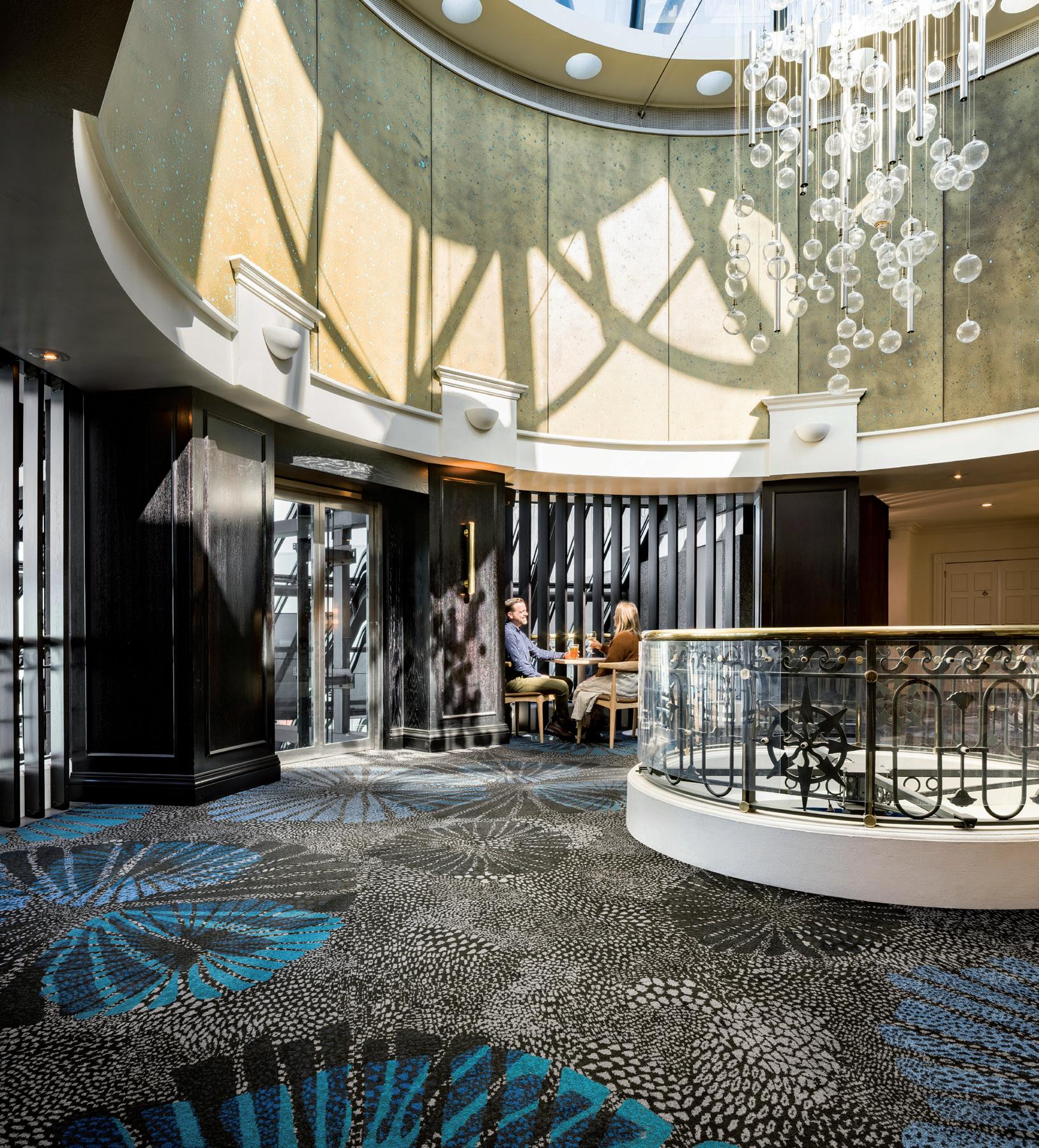
Belgotex brings custom design and function together - as seen at Christchurch Casino
In a city alive with exciting new hospitality developments, Belgotex brings vibrant energy and design innovation to the renovations at Christchurch Casino. The over 3000sqm bespoke Belgotex flooring concept captures the creative and artistic spirit of the city - seamlessly blending texture, colour, and craftsmanship to shape an atmosphere as dynamic and vibrant as Christchurch itself.
The key element of this design lies in its modular carpet tile format, which - combined with an innovative laying
Images credits: Dennis Radermacher, Lightforge
plan and large-scale pattern - creates a sense of bold intrigue, understated elegance, and expansiveness. This approach enables streamlined installation, simplified maintenance, and reduced material waste.
Custom design enables exclusive patterns, integrated logos, and floor coverings that contribute to a cohesive aesthetic reflecting the venue’s identity. It helps define zones, reinforce themes, and enhance the overall value of every detail.
In the world of hospitality, flowing, curvilinear forms echo the rhythm of cyclical life, shaping environments that feel both invigorating and comforting - spaces where guests are simultaneously energised and at ease.
Woven Axminster carpet tiles combine exceptional durability with timeless design. Engineered to retain their appearance under heavy foot traffic, they offer outstanding performance and acoustic comfort - ideal for busy commercial environments.
Manufactured from a premium 80% wool and 20% nylon blend, these tiles can incorporate up to 12 colours. The wool itself comes predominantly from New Zealand and the British Isles. Produced in ISO 14001-certified facilities, they are PVC-free, low VOC, and CRI Green Label Plus certified, ensuring a sustainable and healthy flooring solution.
Belgotex believes that everything they do should creatively challenge the flooring and interior design status quo - and this impressive project is a testament to that vision. l



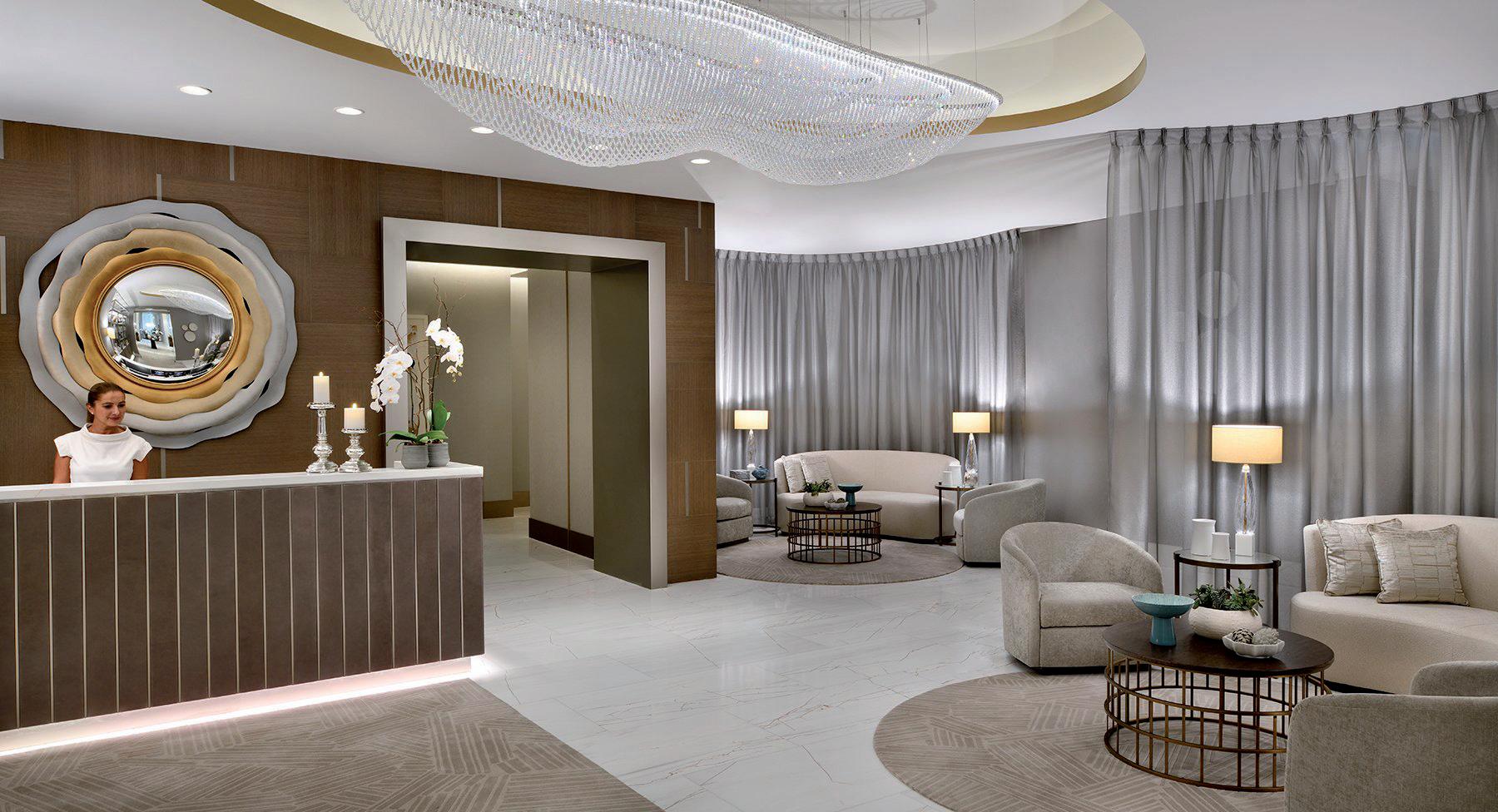
In accommodation businesses, a spa environment will offer guests an oasis of unparalleled benefits.
Nick Plimmer from Ministry of Architecture + Interiors has been a designer of spa and wellness offerings for various hotels and boutique accommodation offerings.
One noticeable standout in his career was the spa at the Address Downtown Dubai, which he was involved in different elements of its design, including playing the role of the main Design Manager in the
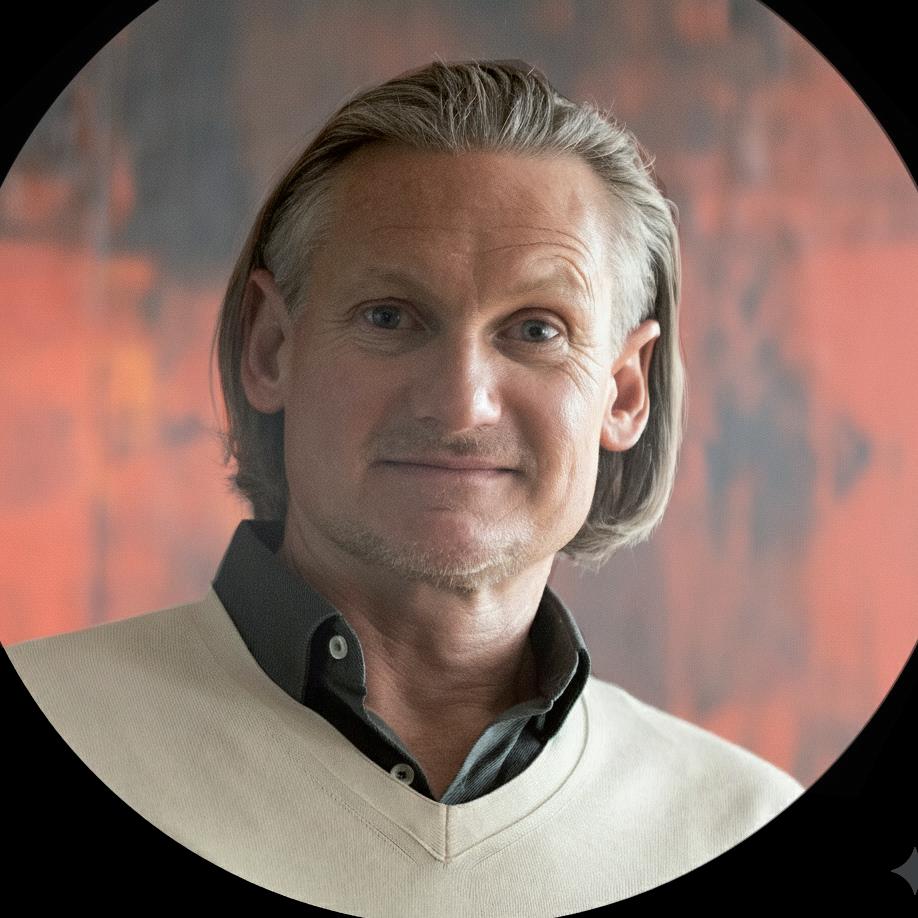
Relationship Manager Ministry of Architecture + Interiors
implementation and fit-out process, which provides for a very unique perspective on the operations and considerations of a spa of this scale.
He described it as very big, very premium, and a lot of it had been done well. However, there are various factors that the industry has continued to use when designing spa spaces, which he said were of particular importance.
Recently, while enjoying the Spa at the Hilton Queenstown Resort & Spa,

Plimmer said he was conversing with a Norwegian man in the sauna.
“Of course, the topic of discussion landed upon the Scandinavian health and wellness culture, combined with the social elements which occur naturally,” he said.
“In our spa design approach, we consider closely the introspective nature of the spa experience, the washing away of stress, and a renewed mental clarity. There are some key factors which contribute towards inducing this state of ‘world away bliss’.”
Plimmer said that the arrival experience should allow guests to be transported into an immediate experience of calm, fragrance, and a touch of wonderment.
He listed lighting as a key element, specifically the use of reduced blue lights, uplighting, and texture. He added that the sequence of movement through the interior was important, such as niches for objects and accessories and the importance of privacy at the relaxation area.
Plimmer said the relaxation space has become a lost space, a dead area of the floor plan which gets utilised. He said spaces should be designed for all users, including both guests and staff. An example of this is hidden doors for staff so guests are not confused, the notion of privacy within the environment, and functionality for staff to offer the best possible service. l



Daniel Gust, General Manager of Adina Cologne, has dedicated his entire career to the hospitality industry.
His first role was in a business hotel in Düsseldorf, followed by a stint at a five-star hotel where he gained valuable experience within the industry. Most recently, he was introduced to the concept of long-stay accommodation models and has been in a General Manager position since 2017.
He was encouraged to join the Adina Cologne team after he had been fascinated by the philosophy behind the brand. He said the concept of combining Australian hospitality with urban apartment

comfort has impressed him.
A personal highlight of the hotel for Gust is its design, which was inspired by the proximity of the Cologne Cathedral and the Rhine. Natural materials, warm colours and generous glass fronts create a feeling of openness and tranquillity in the heart of the city. In addition, its studios and apartments are designed to offer guests maximum flexibility, which he said were ideal for longer stays.
Gust said one important element of the hotel’s operations is its emphasis on employee development.
“In addition to regular training on service quality, communication and leadership, we also offer
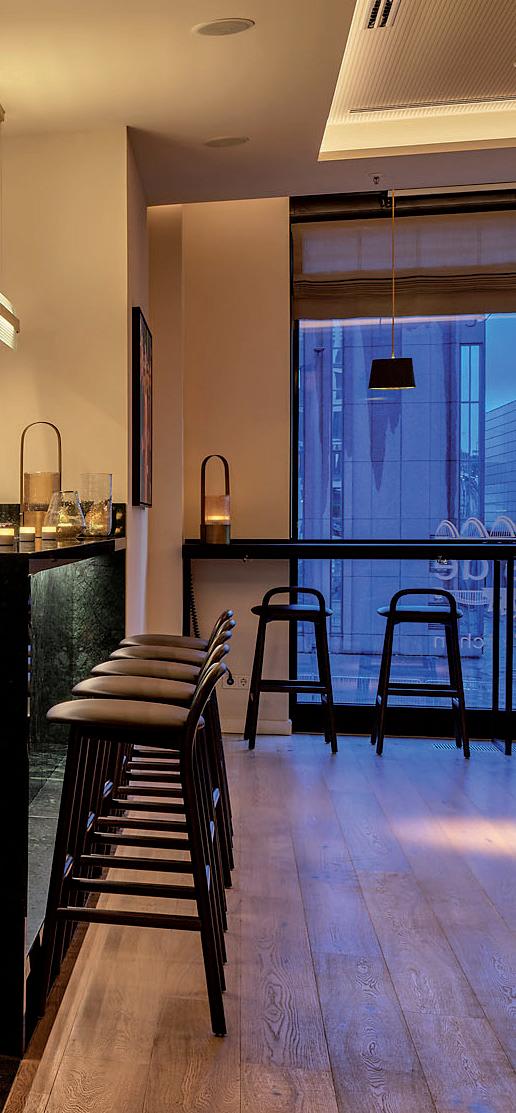

General Manager
Adina Cologne
international exchange programmes within the Adina Group, the Go Global program. Many colleagues started their careers with us and now hold senior positions in Europe or Australia, something we are very proud of,” he said.
He said the team do what they do because of the passion they have to
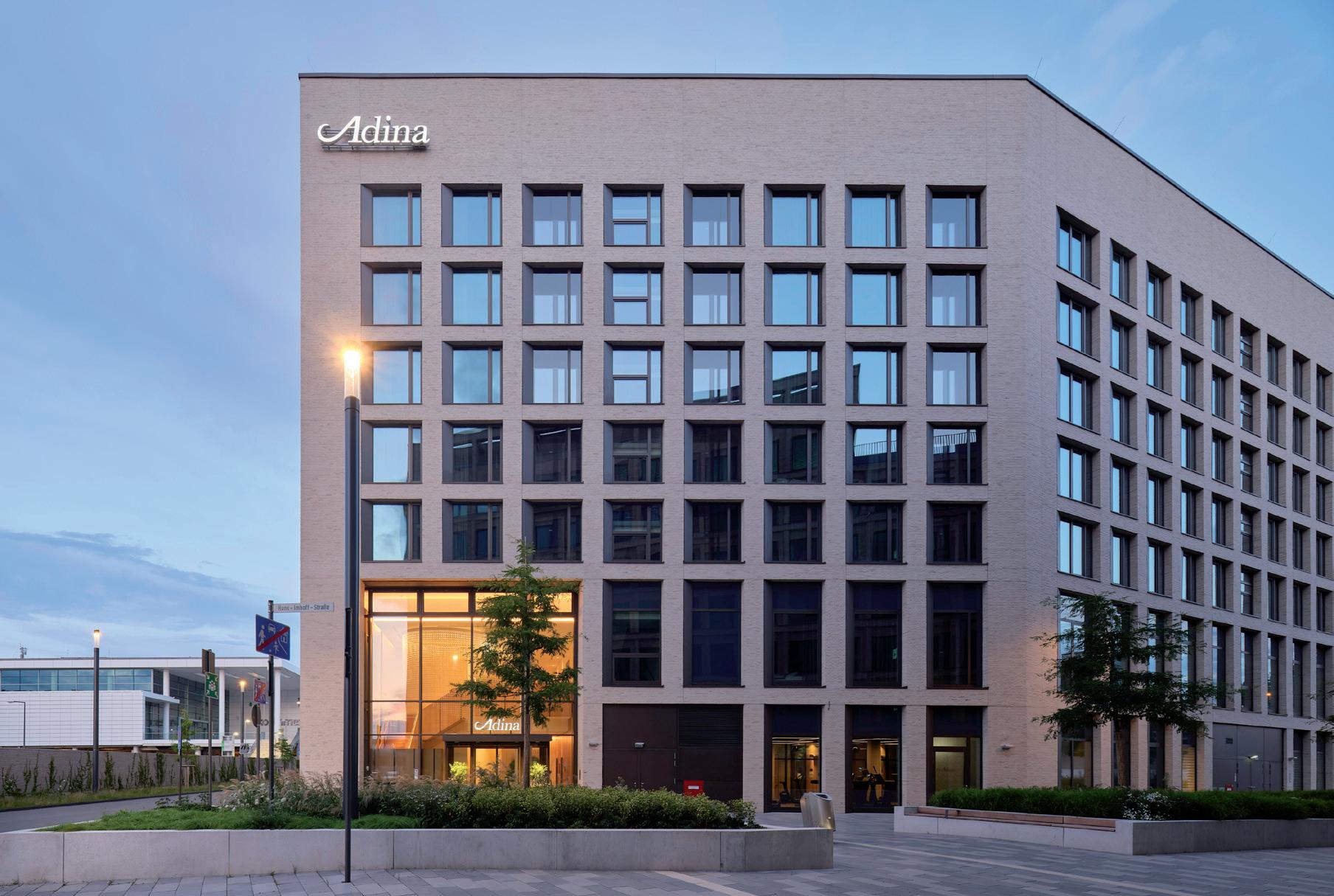
work together with people. He said the guests are at the heart of the hotel, and the staff listen actively, respond to feedback and always strive to exceed expectations.
Gust added that an open, appreciative working environment is crucial to achieve this, and only motivated employees can provide excellent service and have fun at work. Adina Cologne has also invested in training and digital aids to simplify the processes and create more time for personal contact.
Adina Cologne’s advantage is the possibility to offer long-term stays, but Gust said it was important to remain flexible in challenging economic times. The hotel has further developed its food and beverage and conference offerings, and has placed greater importance on their needs, from breakfast preferences to preferred room types. This has resulted in both efficiency and individuality.
Gust said technology is not an end in itself, but a means of providing more personalised service.
“Digital check-ins, mobile keys and smart room control make our guests' stay easier. At the same time, we use data-based analyses to better understand their needs.”
The shortage of skilled workers has remained a key challenge. Gust added that it was a strong influence on the decision to invest heavily in training and employee retention.
Adina Cologne has also had to strike a balance between sustainability, digitalisation and economic efficiency, which has required smart priorities and innovative solutions.
Since the pandemic, Gust said the industry has changed significantly. He has observed how guests have become more demanding and have placed greater value on sustainability and flexibility. He added that longterm stays and “workation” bookings have become increasingly popular, which is precisely where the Adina concept has come into its own.
“I believe that the future belongs to hotels that remain authentic, adaptable and human.”
Adina stands for apartment lifestyle with hotel service, which Gust described as the best of both worlds. He said guests enjoy the freedom of their own kitchen and the comfort of a four-star hotel. Added to this is a warm, cosmopolitan atmosphere that is typically Australian.
“Guests feel this sense of lightness and authenticity, and that is exactly what makes us special.”
Even though the challenges have changed and the responsibility is greater than at the beginning of his career, Gust said his job, in which every day is different, has given him so many new experiences. He has now been in the hotel industry for over 20 years because this world still fascinates him as much as it did on the first day. l
For Steffen Goubead, the greatest thing about his job is that no two days are the same and there is no routine.
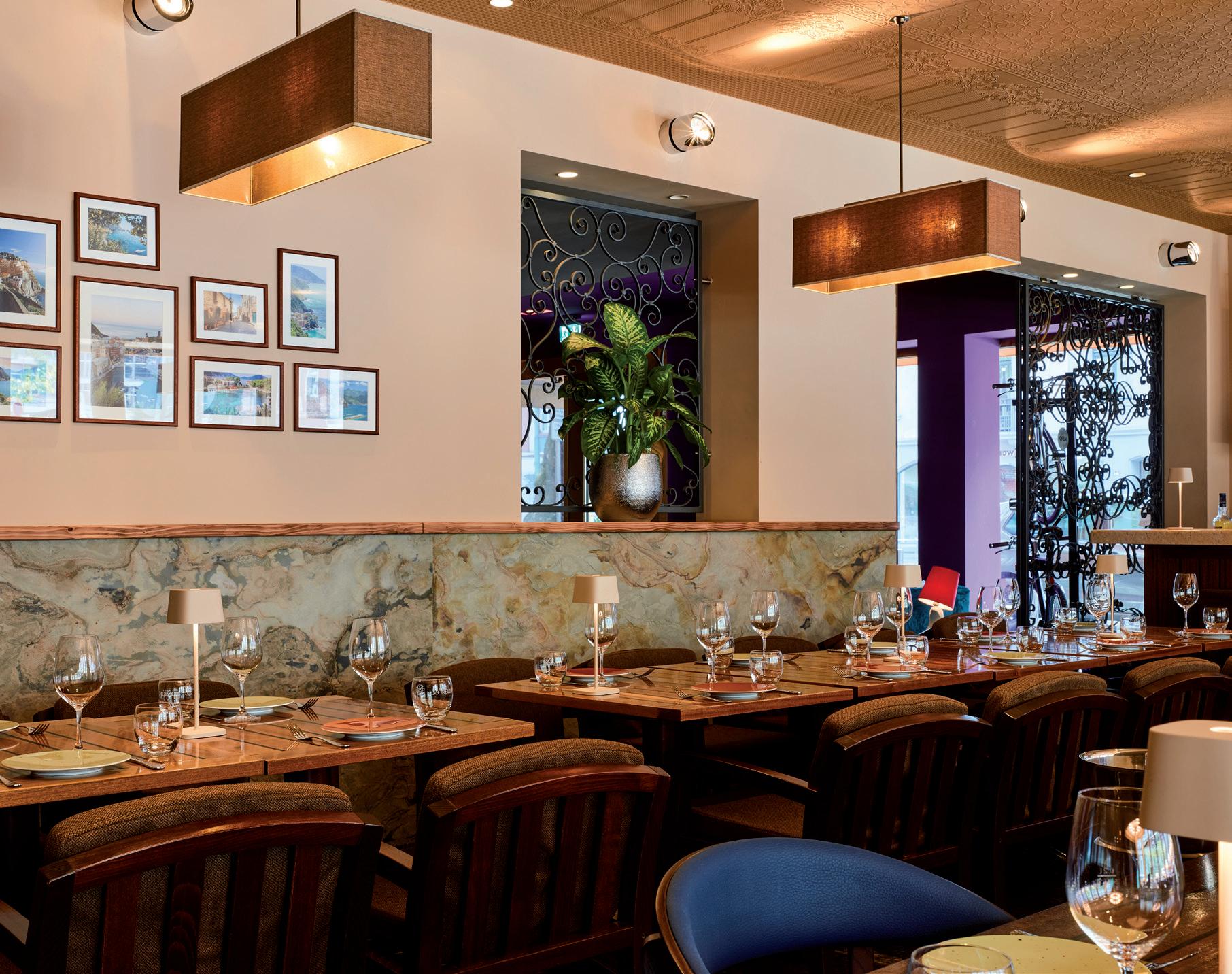
Nevertheless, Goubead, General Manager of two 25hours Hotels in Frankfurt, said starting the day with an espresso in the lobby was a must.
This has become the ideal time to chat with guests and staff, and is usually followed by regular meetings or calls with various parties, especially owners or the HOD. After this, he focuses his time on larger projects, such as ongoing renovations or new collaboration opportunities in the respective district. Tours throughout the individual hotel areas are an integral

part of his day, and fortunately, they usually last longer than expected as he often interacts with guests and colleagues.
Towards the end of his day, Goubead responds to various emails and completes any small or urgent tasks that have arisen during the day. Despite this, he said a typical day doesn’t really exist.
Originally a political science and sociology student, Goubead fell headfirst into the hotel industry after a part-time job. His career began as a bartender before moving on to various positions for the local Gekko Group and Marriott. Later in his
Images by Stephan Lemke
career, he became the F&B manager for a local hotel group, and after completing further training in hotel management, became the cluster hotel manager for Ruby Hotels before taking over his current role in 2023.
“I'd been familiar with 25hours for a while and already stayed with the hotels in Hamburg and Berlin. I was particularly fascinated by the fact that no hotels are alike, but you can still feel that you're in a 25hours hotel,” said Goubead.
He added that lifestyle and designoriented products generally appeal to him, so he was glad when given the opportunity to take over two 25hours Hotels properties. He has worked in Frankfurt for almost 15 years, was born nearby and is still fascinated byt the vibe, flair and potential of the bustling city and its people.
Each 25hours hotel has its own story and DNA, which Goubead said was evident in the two hotels he manages. The Trip Hotel is all about travel and discovery, while the Goldman Hotel tells captivating stories of both local and worldfamous personalities in every corner and room. He said each of them has made a positive impact on the world in their own unique and often

Steffen Goubeaud
25hours Hotels Frankfurt
unconventional way. Like all 25hours properties, the story at both hotels has thrived on details.
Balancing priorities across both properties has been an important skill for Goubead to develop. One of his key priorities has been to oversee renovations and redesign processes in both hotels. He added that this will not only create new visual impressions, but will also offer new usage options for the public that will be implemented in the foreseeable future.
The detailed planning and soonto-be-implementation of the various operational innovations will be a prime priority in the lead-up to the new year, with further renovations in guest rooms set to follow.
Goubead does his best to distribute his time equally between both hotels and tries to be present at both hotels as often as possible. He said for this to work, it was about having trust in the respective department heads on site. To date, this method has worked well.
“Ultimately, they and all the employees are the guarantors of a guest experience that goes beyond the ordinary. My job is more about providing them with the necessary

tools,” he added.
“At the same time, the consistent and detailed design concept and storytelling are of course extremely important for a sustainable guest experience, which also requires a high level of daily attention.”
Both hotels have utilised technological innovations across the group, such as chatbots, AIoptimised solutions for measuring and reducing food waste, digitised purchasing processes and much more. At the same time, Goubead said he has explored possibilities in the areas of intelligent room management and digital checkins, and has constantly optimised the guest experience with new technological possibilities in areas where it simplifies the guest journey.
“However, in our view, we still need to be very careful when we run the risk of overwhelming our guests (and employees) with technological innovations,” he said.
Unlike other markets in Germany, the Frankfurt market has not yet returned to its pre-pandemic level. At the same time, the number of hotels and beds on the market has increased annually, leading to enormous competitive pressure.
In this challenging market, Goubead said environmental product development and product communication were among the most important tools for a successful hotel operation. This involves not only design and comfort, but also such areas as gastronomic offerings. He said it was extremely important to constantly review F&B operations for their relevance and to be open to new trends without losing sight of costs.
Gourbeard said the hospitality industry in Germany is traditionally considered rather conservative. Accordingly, staff shortages, digitalisation backlogs and cost pressures were and remain the biggest challenges since the end of the pandemic. He said the focus has now shifted to areas like co-working, technical room amenities and fitness.
Even after almost 20 years, Goubead said 25hours has managed to clearly differentiate its brand from its competitors and has stood out in the market through its consistent product development and its unique philosophy. He added that in a highly competitive environment, standing still has meant going backwards, which is something he is constantly reminded of. l

Since taking on the role as TFE Hotels’ CEO for Europe in 2024, Asli Kutlucan said the brand’s unique combination of its strong Australian DNA and ambitious European growth has made it an exciting role to work in.
TFE Hotel’s owner-operator model has given her real agility and hands-on control to shape truly exceptional guest experiences. She was grateful for the opportunity to contribute to a portfolio in the midst of a transformational growth phase and to bring “apartments with soul” to Europe. She described it as a product that beautifully blended extended-stay convenience with the warmth and ease of living.
Scaling Cycas Hospitality from a start-up to a pan-European player taught Kutlucan how to

balance entrepreneurial drive with institutional discipline and how to stay bold and creative while building solid structures for sustainable growth. Her experience across both real estate and operations has sharpened her ability to create genuine value for owners and investors, not just through assets but through the way they are operated.
“Having navigated multiple market cycles, including the unprecedented challenges of COVID, I’ve witnessed first-hand the power of resilience and the advantage of flexible models like extended stay,” said Kutlucan.
“Above all, I believe that lasting growth is driven by culture and people: They’re the true engine behind every exceptional hospitality story.”
Kutlucan said Adina was a trusted, premium apartment-hotel brand where people can live with ease. She admired how it perfectly combined space, fully equipped kitchens, and long-stay comfort with the convenience of hotel services. In her opinion, A by Adina has built on that foundation with a design-led,
Continued on pg. 20
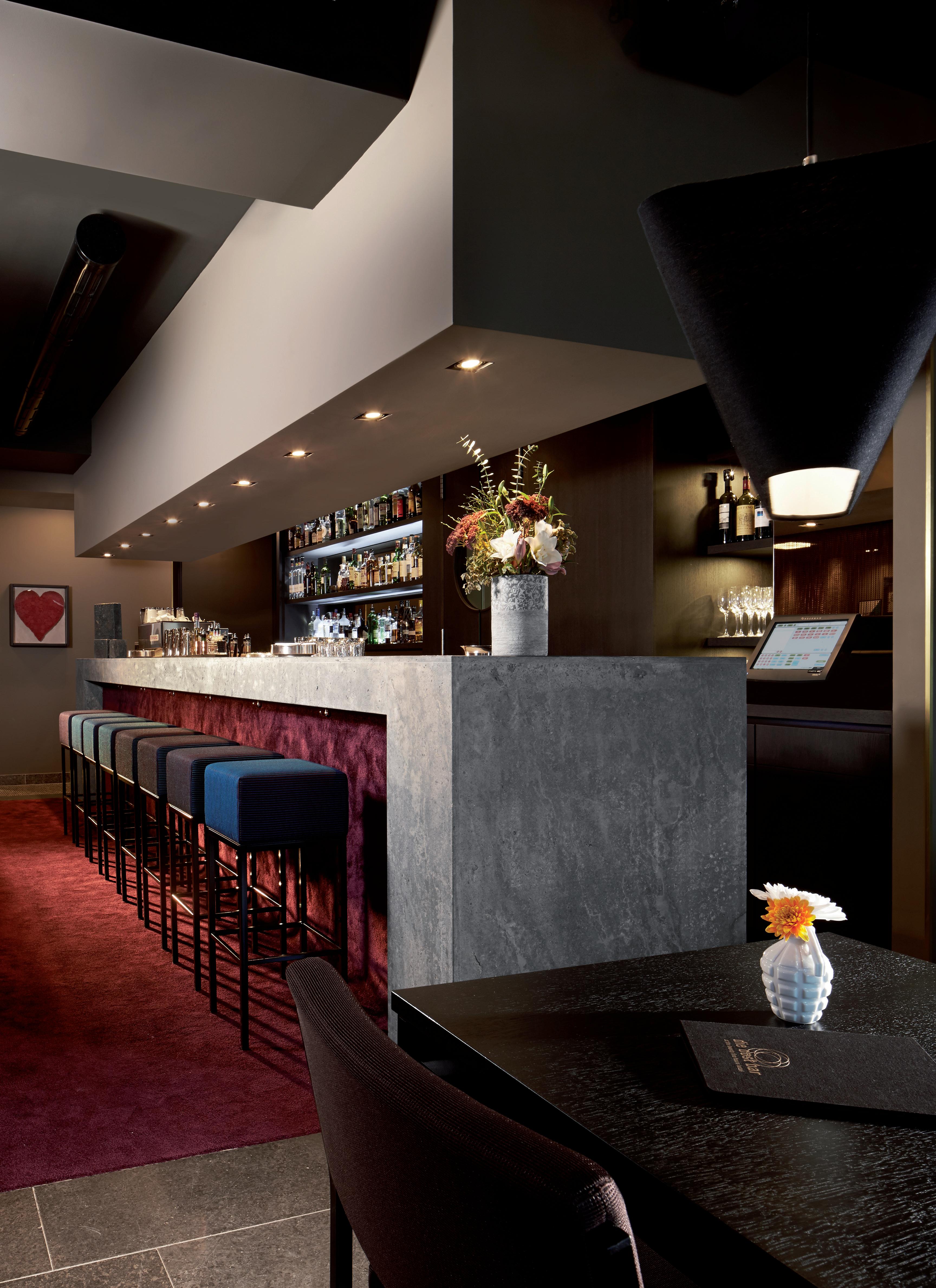


Europe CEO TFE Hotels
Continued from pg. 18
premium twist for guests who are more experience-driven and seek something elevated.
She explained how the two brands cover a powerful spectrum: Adina caters to business, leisure, and extended stays, while A by Adina captures the spirit of elevated living, describing it as stylish, connected, and full of character.
In the European market currently, the biggest opportunities lie in the rapidly growing demand for extended-stay and larger-space accommodation.
The rise of “bleisure” travel and the resurgence of long-stay corporate demand have further reinforced this shift toward more flexible, homelike stays. Kutlucan said there’s also considerable potential in repurposing

or repositioning underperforming hotels into extended-stay formats.
She described this as a smart, sustainable way to unlock new value, and growth in secondary cities and urban regeneration projects has presented exciting prospects, especially for the brand’s adaptable product, MM:NT, which fits perfectly into these evolving urban landscapes.
In the coming years, Kutlucan said she was particularly excited about market entry and further growth for TFE Hotels in the UK, including the two openings scheduled for later this year.
She also explained the significance of moving into the Nordic and Benelux markets too, which offer significant potential.
With Adina apartment-hotels already established in Germany, Austria, Denmark, Switzerland,
Images by Stephan Lemke
Hungary, Australia, New Zealand, and Singapore, the UK represents an exciting new frontier.
This expansion was a natural next step in the group’s European strategy following more than two decades of successful growth across Europe. This expansion has responded to the rising demand for flexible, design-forward apartmenthotel experiences in key leisure and business destinations across the UK.
In Glasgow, a strong corporate hub with significant international demand, the 56-key Hobson Cambridge by Adina will open in a beautifully repurposed former police station. The property blends historic architecture with contemporary design and will feature a signature bar and restaurant in its glass-roofed courtyard, tailored to the city’s local, academic, and cultural clientele.
In Cambridge, the Wellington Glasgow by Adina will tap into the city’s vibrant university, science, and tech cluster. The 98 design-forward studio apartments are ideally located just off George Square, providing guests with easy access to business, entertainment, and nightlife precincts.
Looking ahead, A by Adina Berlin Kurfürstendamm (2027) will serve as a flagship premium project, anchoring one of Berlin’s most dynamic urban quarters. Meanwhile, TFE Hotels is in the final phase of negotiations for its first MM:NT hotels.
Kutlucan said choosing a new first location for an Adina hotel in Europe has involved several key considerations, from ensuring there is a strong balance of corporate and leisure demand, consistent occupancy and connectivity and accessibility. She said locations should have genuine community appeal, as guests want to feel integrated into the local environment.
“In our new hotels, design and sustainability go hand in hand. We partner with top-tier European designers to create spaces that
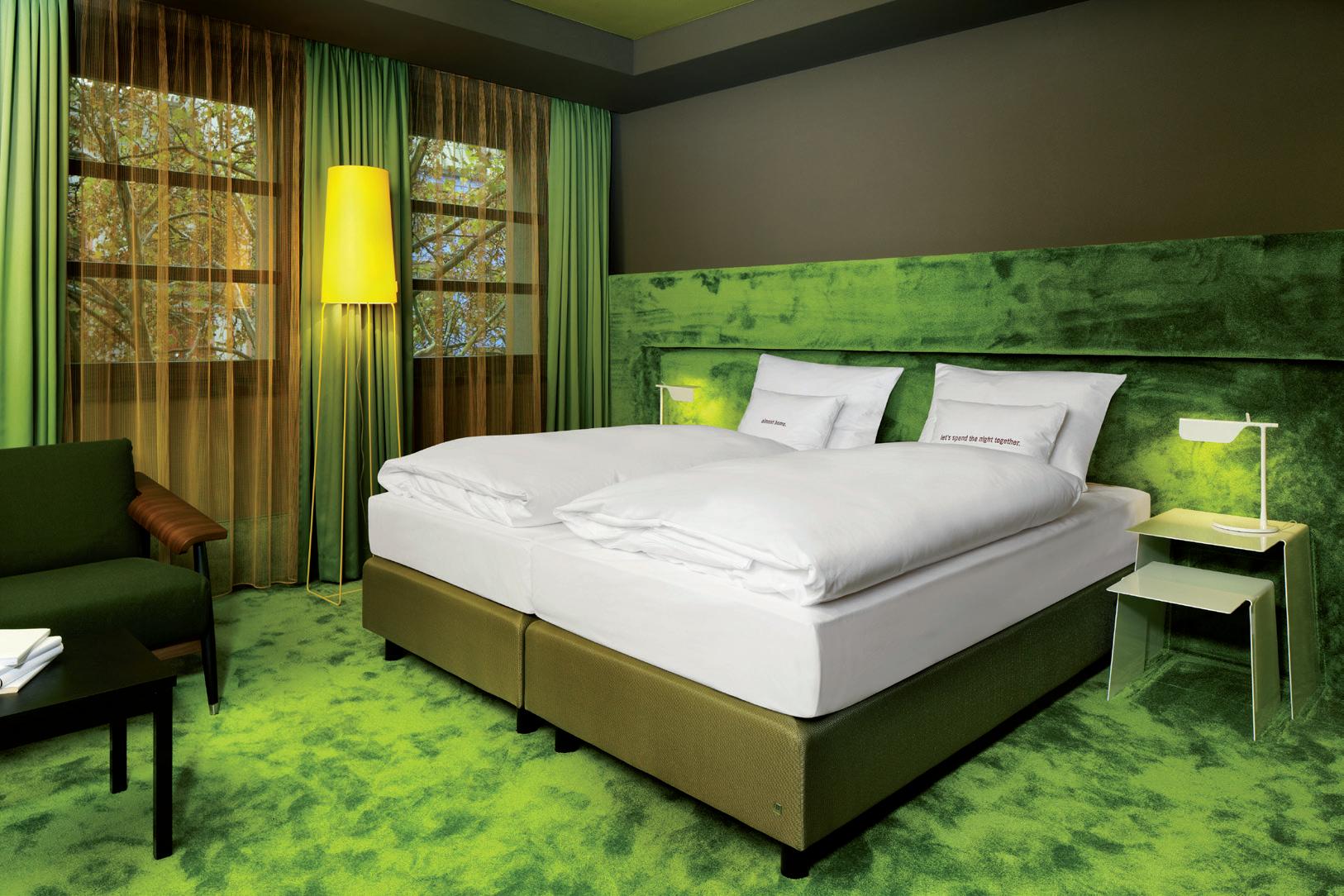
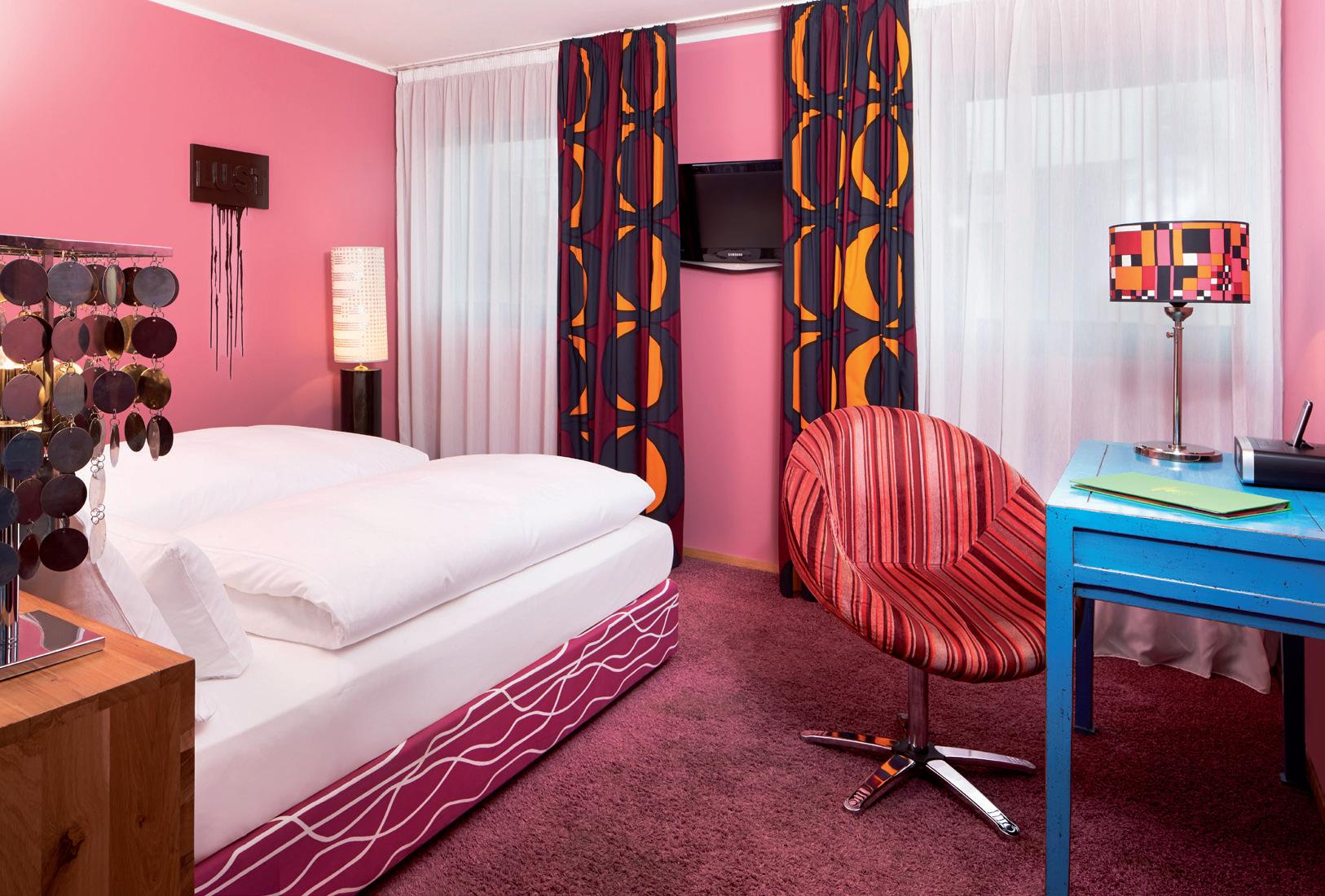
balance functionality with a strong sense of local character and flair.”
Kutlucan said sustainability is embedded from day one, and features like energy-efficient systems, smart building technologies and locally sourced materials form the backbone of its approach.
“We also focus on guest-facing sustainability, from reducing plastics to implementing intelligent waste systems, so that eco-conscious practices become part of the stay experience. The goal is to deliver beautiful, responsible spaces that are both timeless and built to last.”
Empowering teams to bring their city’s character to life is an integral part of the group’s approach.
Kutlucan said leadership development and clear internal career pathways ensure operators
can grow in the company, while celebrating diversity was essential.
“Our European teams represent dozens of nationalities, reflecting the richness of our guests and the communities we serve.”
She added that there is a strong entrepreneurial spirit paired with an unwavering guest focus at all of the group’s hotels, which has combined deep hotel expertise with a servicedapartment mindset.
Kutlucan said the team has taken pride in being part of a growth story, building a brand instead of just operating it, and fostering a shared purpose and genuine camaraderie.
In five years’ time, Kutlucan hoped TFE is celebrated for combining commercial strength with heartfelt hospitality, for growing responsibility and building lasting partnerships. l
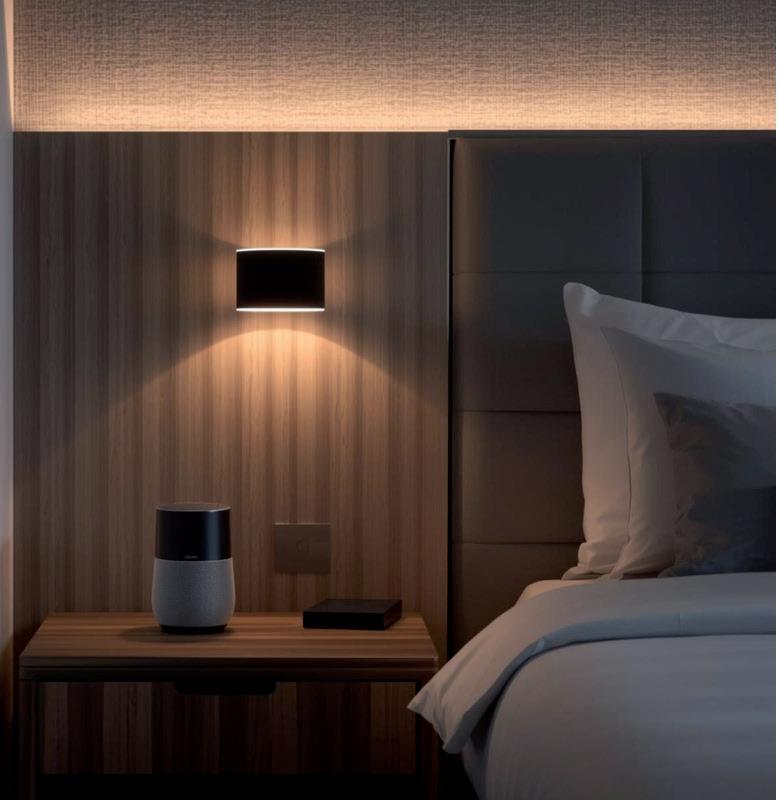
Voice-activated room controls have completely changed how guests experience hotel stays, making it easier for them to manage their surroundings with comfort and ease.

Instead of juggling multiple remotes or switches, guests are now able to simply ask the room to adjust the temperature, dim the lights, or even close the curtains, all without having to get up. Technology has gone a step further by remembering preferences, allowing future visits to feel more personalised and effortless.
In the modern technology age, guests can order room service, request housekeeping, or manage entertainment systems with voice commands. It took away the hassle of phone calls or navigating complicated menus, turning once time-consuming tasks into quick, seamless actions.
Hotels and accommodation providers of all sizes across the world have begun embracing this new era of technology. A 2019 Lodging Technology Study revealed that nearly 80 out of every 100 hoteliers viewed voice-enabled systems as key to improving guest satisfaction. Major chains such as

Marriott International have partnered with major brands like Amazon Alexa to integrate these tools into daily operations, leading the shift toward more intelligent and interactive hospitality experiences.
Voice-activated controls have also provided an additional duty of care for guests with disabilities. Data from the Centres for Disease Control and Prevention showed that nearly 14 percent of people with disabilities faced mobility challenges affecting their hands or arms, while almost five percent had visual impairments. For these guests, being able to control room settings with simple voice commands made their stay far more accessible. They no longer needed to reach for switches, buttons, or remotes, allowing them greater independence and comfort during their visit.
Some providers have even linked
voice systems with other property technologies. This has meant that as soon as a guest checked in, their room could automatically adjust to their preferred temperature, lighting, and entertainment options. It has created an inclusive environment that celebrates convenience and accessibility for everyone.
The benefits extended beyond comfort. Voice-activated systems helped operators manage energy use more efficiently, particularly in heating, ventilation, and air conditioning. Since HVAC systems can account for more than half of a hotel’s total energy consumption, smart automation has a significant impact. By combining sensors with voice control, hotels managed to cut total energy bills by up to fifteen percent and HVAC costs by as much
Continued on pg. 24
Key features such as occupancy detection, smart lighting, ambient light sensors, and automated energysaving scenes contributed to even greater efficiency. In many cases, investments have been recovered within one to two years while enjoying reduced energy costs and improved sustainability.
Continued from pg. 23
as thirty percent.
Properties, such as Absolute Bangla Suites and Oootopia in Hong Kong, achieved up to thirty percent monthly energy savings, while Truntum Hotel Kuta reduced its energy use by a quarter within six months. These savings came not only from automation but also from reducing waste. More than half of hotel guests reportedly left air conditioning running even when windows or doors were open, and smart systems helped correct this automatically, saving an additional twenty percent in energy.
Key features such as occupancy detection, smart lighting, ambient light sensors, and automated energysaving scenes contributed to even greater efficiency. In many cases, investments have been recovered within one to two years while enjoying reduced energy costs and improved sustainability.
For hotel staff, voice-activated systems have simplified daily

operations. Instead of fielding calls for extra towels or late checkouts, requests could be routed directly to the right department. This streamlined communication reduced pressure on front desk staff and ensured that guests received what they needed quickly and accurately.
Several hotels around the world have shown just how powerful this could be. Fairmont Le Manoir Richelieu introduced a bilingual Alexa system to personalise guest services, while Las Vegas’s Circa Resort & Casino integrated voice control across its property. Its cofounder, Greg Stevens, said that if a hotel didn’t have Alexa yet, it was already behind the times.
Industry experts also emphasised how easily these systems connected with other hotel technologies. Jeffrey Clement from Volara described voiceactivated controls as a frictionless way for guests to interact with every part of the room’s technology, from entertainment to lighting.
These innovations not only enhanced comfort but also opened new opportunities for hotels to
increase revenue and stand out in a competitive market. Wynn Las Vegas offered a prime example, where guests could book restaurants or order room service using their voice alone. Founder Steve Wynn described it as one of the most intuitive upgrades ever introduced, comparing the technology to a personal butler available to every guest.
Hotels are also able to highlight these systems in their marketing, showcase them on booking sites, and offer multilingual options for international travellers. Artificial intelligence could even tailor experiences based on a guest’s preferences, creating a level of personalisation that modern travellers expect.
Demand for in-room voice assistants has been forecast to grow by 71 percent over five years, reflecting the growing importance of technology in hospitality. Combined with energy savings, smoother operations, and improved guest satisfaction, voice-activated systems have redefined what a truly modern hotel stay could be. l



Arguably one of the most popular landmarks in New Zealand’s tourism industry, the Cadrona Hotel has long been a stop-off point for tourists, an iconic pub for locals, and a prime example of southern hospitality.



Since it was established in 1863, the keys to the Cadrona Hotel have passed through various owners. The latest, Warren Barclay, is set to take over in November.
Barclay, a Wānaka local, said the legacy of the Cadrona Hotel was an outstanding example of mining town history, and to have a hotel that has lasted for over 160 years should be, and is, celebrated across the country. Barclay is the owner of Experience Group, which runs hospitality for major sporting fixtures and events. He’ll step away from the day-to-day oversight of Experience Group with his new role as its publican.

Barclay’s aim has been to balance that heritage with innovation, but in a thoughtful and carefully managed way.
“As an example, some of the buildings are stand-alone and so a new building would be built (whatever that will be), but in a style that is in keeping with the other buildings around it. And the real test will be in that it adds, and doesn’t detract from, the overall guest experience.”
The Cardrona Hotel sale attracted national and international attention when Thornton announced news of the private sale in July. During the six-week campaign, he received
enquiries from potential buyers from New Zealand, Australia, the United States and Singapore. At the time, the Cardrona Hotel listing on Trade Me Property was the website’s third most popular live listing this year, with more than 130,016 views in five weeks.
The fact that the Cadrona Hotel is an icon was exactly what drew Barclay to the property. He said most Kiwis know of, or have been to, the Cadrona Hotel, either as a skier, a walker, a biker or simply as a visitor.
Barclay added that it is also a very good business with an excellent trading history. Its annual occupancy
Continued on pg. 28
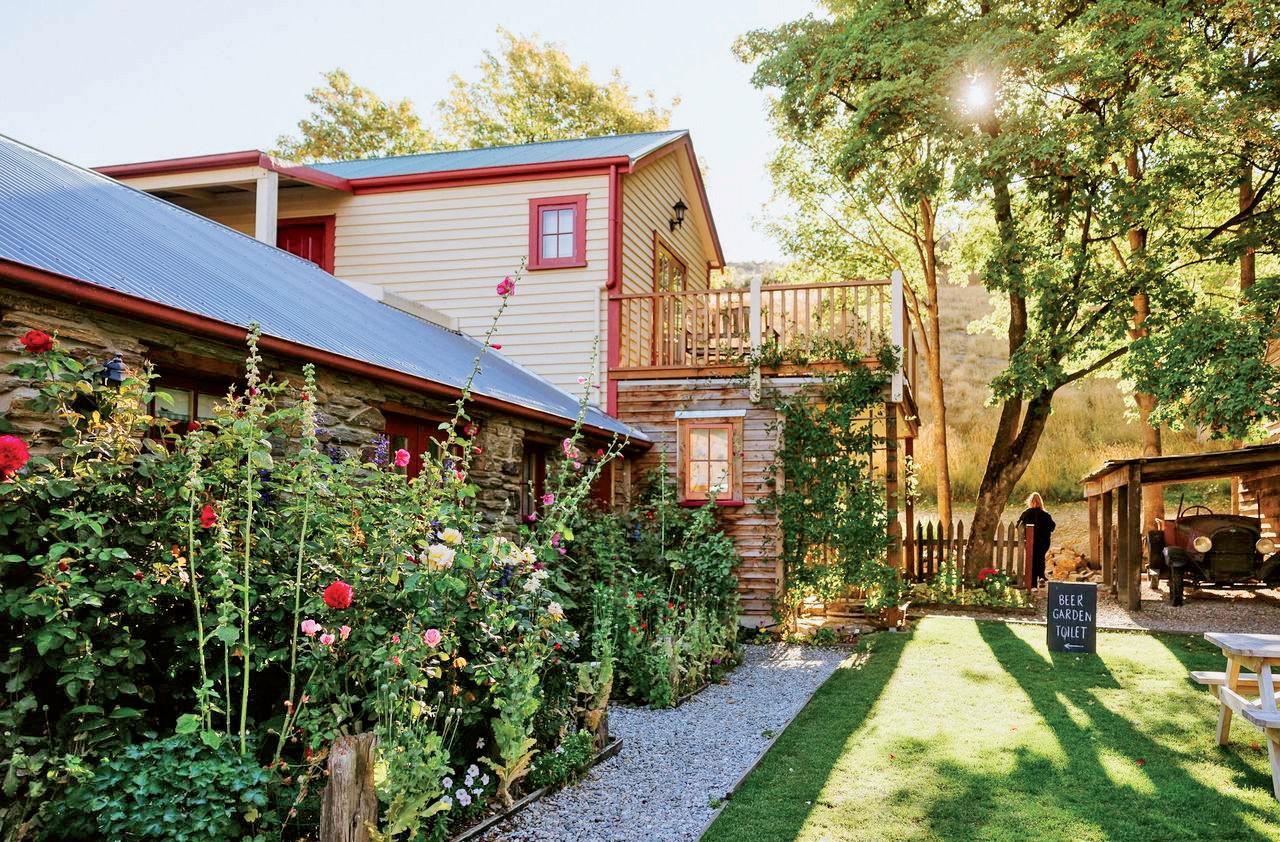

I’m looking forward to the challenge and hope to take locals along with us, while remaining and retaining our regional, national and international patronage numbers.
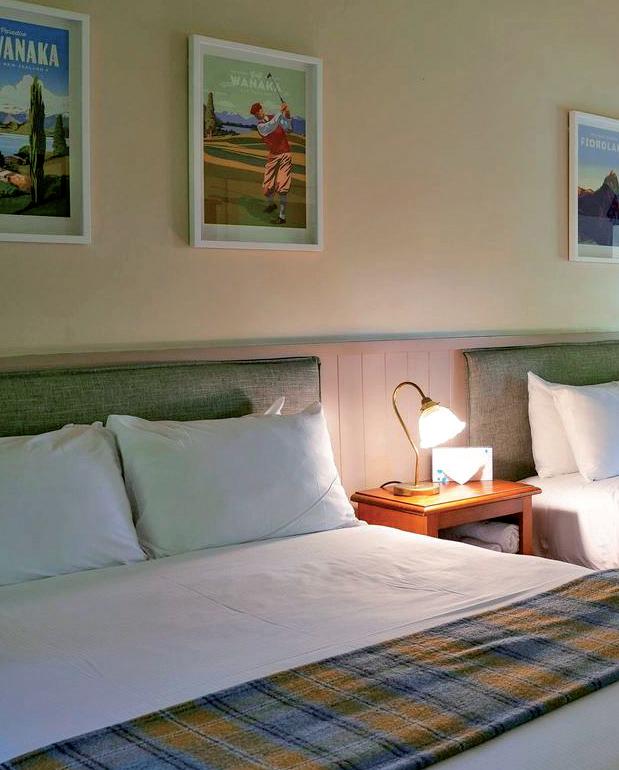
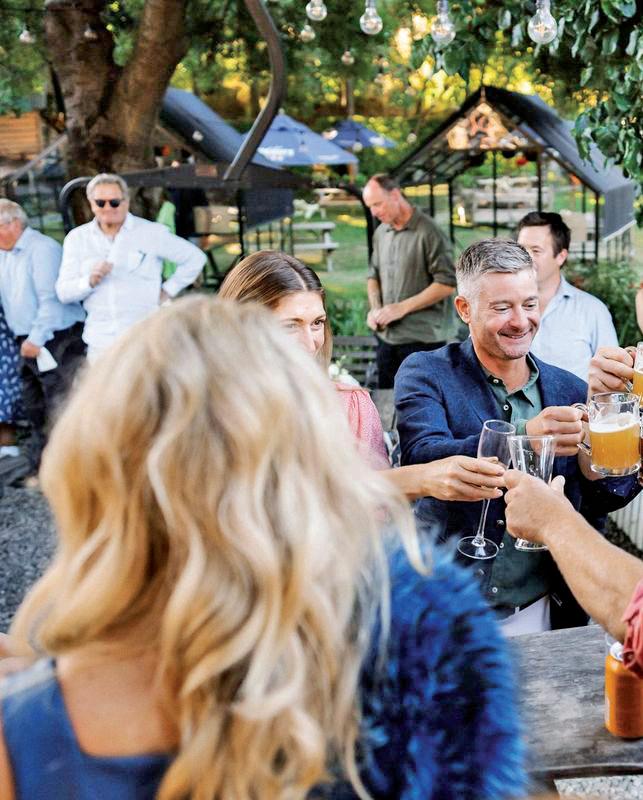
Continued from pg. 27
is in excess of 85 percent, and it has continued to buck various trends recently.
During an overhaul of the guest experience, Barclay said the Cadrona Hotel’s character will be carefully considered and part of a wellthought-out plan.
“We really just want to observe how things are currently, and where we think improvements can be made. Cade and Alexis, the previous owners, have done a great job over


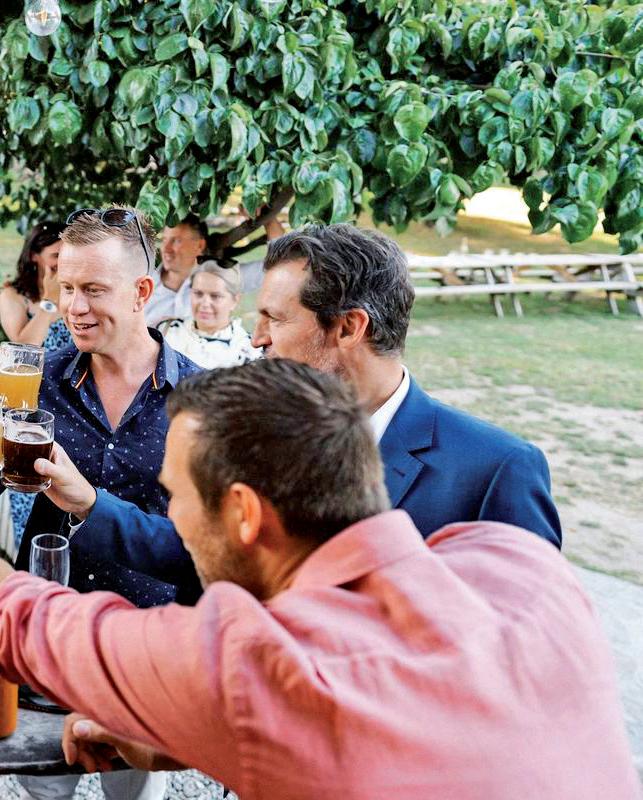
the last 13 years, and there is little to do in the immediate future. So it really is business as usual.”
Barclay described the local Central Otago and Wānaka communities as an important factor in the hotel’s ongoing success.
As with most things, the time and place elements have been crucial to the Cadrona Hotel, especially locals who work, live and play in the region. Barclay would love for the hotel to remain part of the
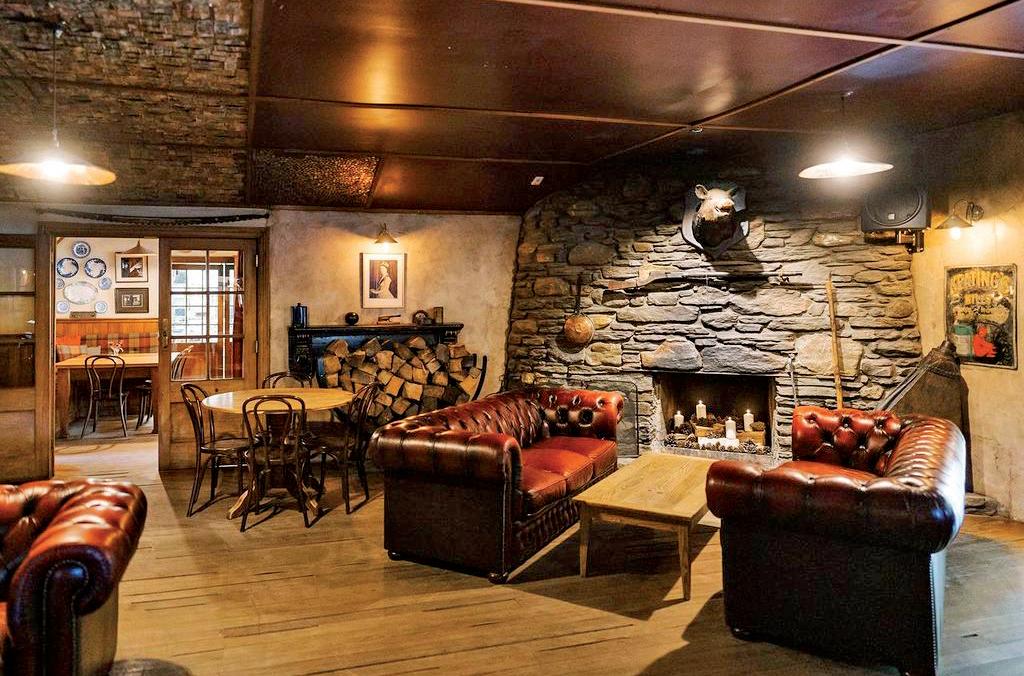

community, and for the community to remain part of the hotel.
While it was too early for Barclay to discuss any future plans for the hotel, he said the priority at hand was to ensure it performed well during the busy summer period ahead.
Over the coming years, he hoped to add more capacity without detracting from the pub’s country heritage and rustic charm. He added that elevating accommodation for staff would also attract really good

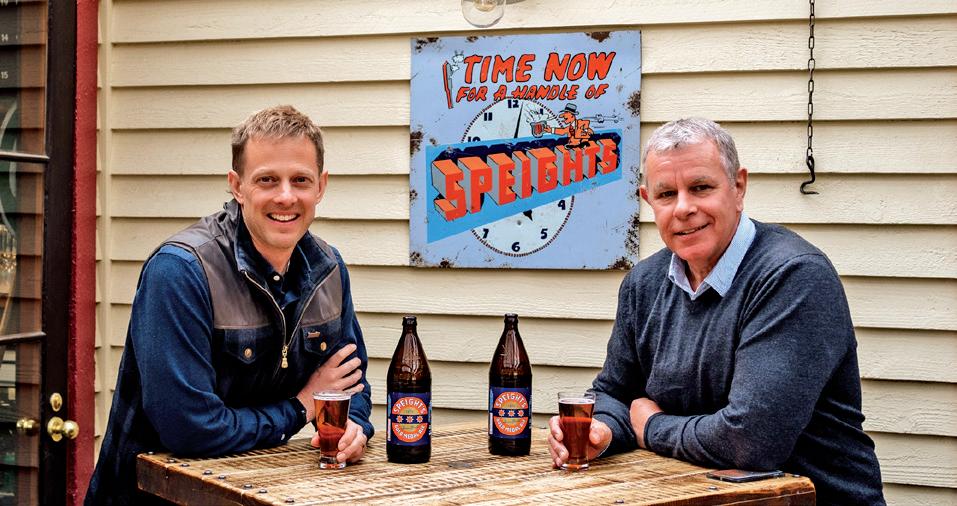
people on a long-term basis.
“I’m looking forward to the challenge and hope to take locals along with us, while remaining and retaining our regional, national and international patronage numbers,” he said.
“I would absolutely like to (along with every other tourism operator) smooth out the shoulder seasons so that we are a popular and highly sought-after local establishment throughout the entire 12 months.” l

A new chapter in Wellington hospitality has begun as the city’s Atura Hotel officially becomes the WQ Hotel (Wellington Quarter Hotel), marking the property’s transformation under Capstone Hotel Management and the introduction of a fresh urban brand to New Zealand’s capital.
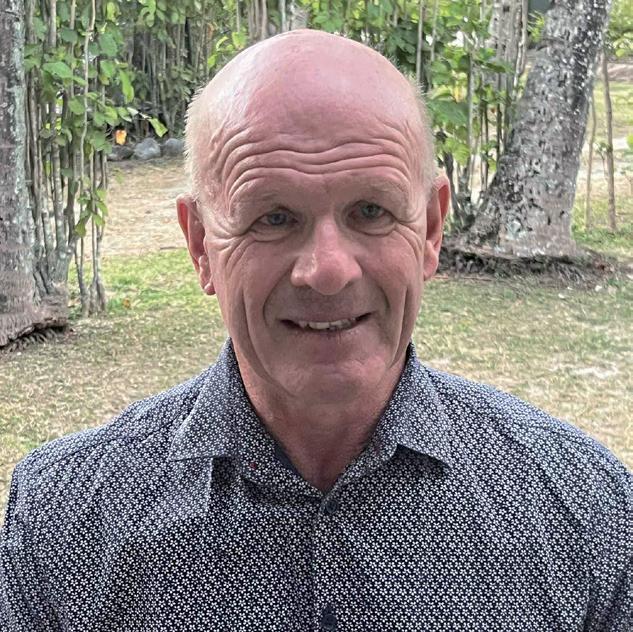
Andrew Whittaker
General Manager WQ Hotel Wellington


The rebrand to WQ represents a strategic evolution for the well-established Thorndon property, elevating its offering while building on the strong foundations that have made it a preferred choice for business and leisure travellers seeking comfort, value and authentic local experiences in the heart of Wellington.
WQ Hotel Wellington will be led by General Manager Andrew Whittaker, who brings more than 30 years of extensive hospitality experience across New Zealand and the Pacific. Most recently serving as Chief Executive Officer of Edgewater Resort and Club Raro in the Cook Islands for six years,

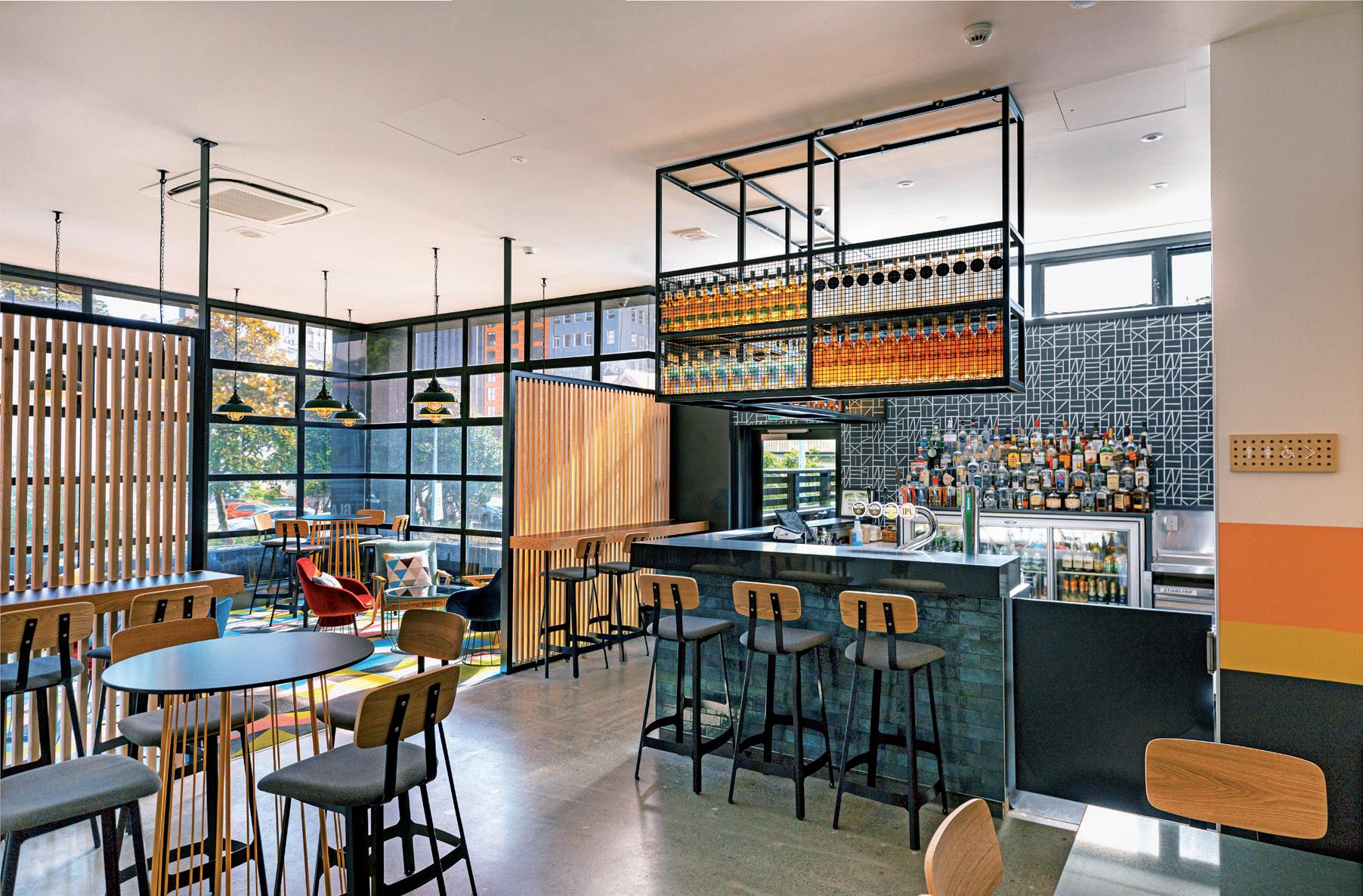
Andrew successfully led two of the region’s most recognised resorts. His career includes over 17 years with Millennium Hotels New Zealand in senior leadership roles and is widely recognised for building highperforming teams and delivering operational excellence.
“We’re delighted to welcome Andrew to lead WQ Hotel Wellington through this exciting transformation and position it for long-term success,” said Clare Davies, Managing Director of Capstone Hotel Management.
“Capstone’s first hotel in the capital, WQ, represents our vision for vibrant Wellington hospitality, where contemporary comfort meets
authentic local connection. This property has always been loved for its excellent location, smart technology, and warm service. We’re excited to build on these strengths while introducing the WQ Hotel brand that captures Wellington’s creative spirit.”
Frankie’s Bar + Eatery continues as the hotel’s vibrant social hub, serving modern New Zealand cuisine and a wine selection showcasing regional vintages. The popular restaurant featuring an outdoor garden bar presents casual, locally driven hospitality that connects guests with the spirit of Wellington’s professional and creative communities.
Continued on pg. 32
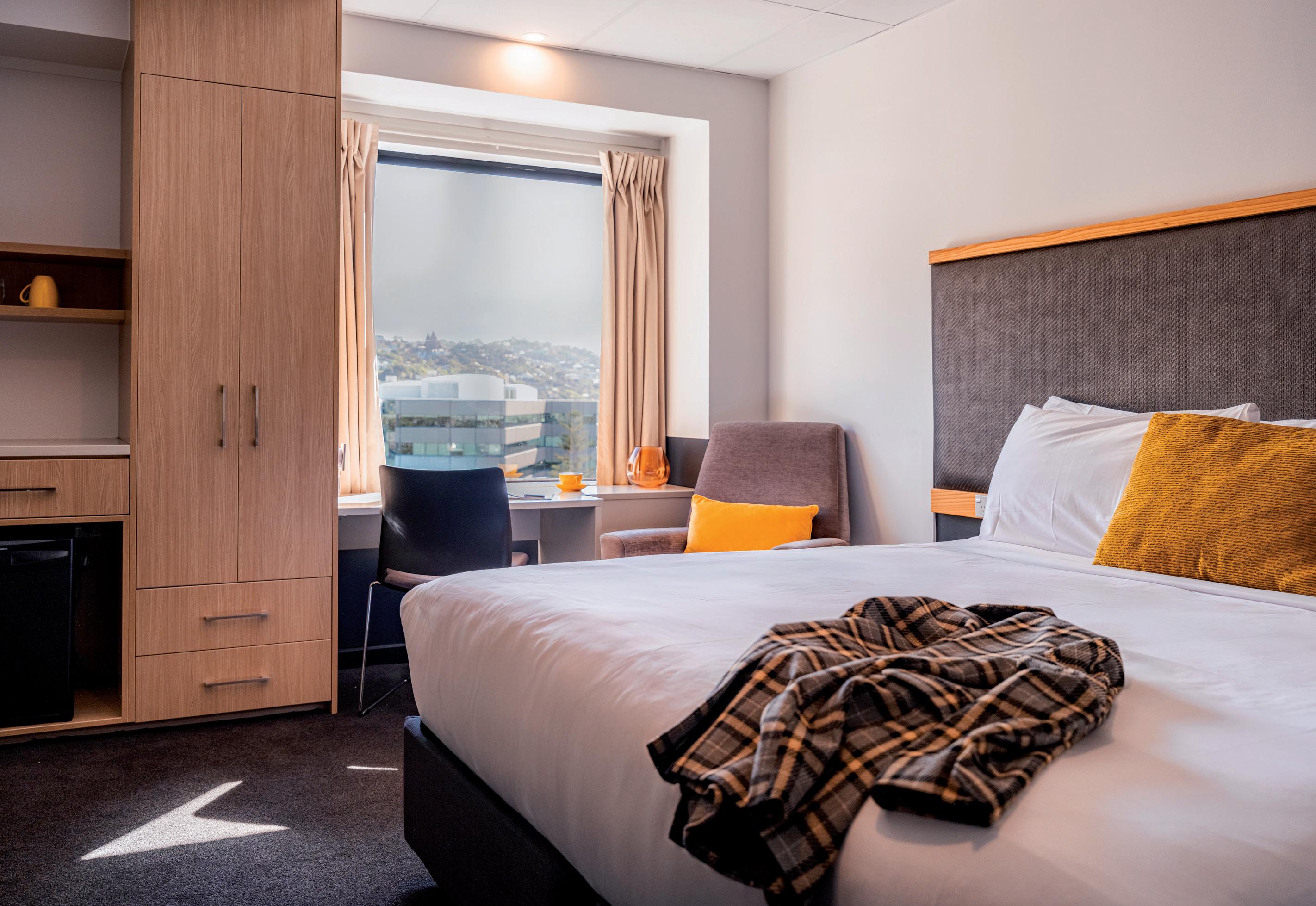


WQ reflects the innovative and creative spirit of Wellington. The hotel fills a sweet spot between luxury and boutique properties, offering an approachable neighbourhood hub with fresh yet funky rooms and service with genuine warmth.
Continued from pg. 31
The hotel currently holds 3.5star Qualmark eco-certification, with Capstone Hotel Management committed to elevating the property to 4-star status while strengthening its sustainable tourism practices. From energy-efficient initiatives to supporting local suppliers and minimising environmental impact, sustainability remains woven into the fabric of WQ’s operations as the hotel embarks on this exciting new chapter.
WQ Hotel’s 108 bright and contemporary rooms feature sweeping city skyline views, with comforts including modern TV’s, workspaces, high-speed WiFi and amenities designed for today’s connected travellers. Guests receive
complimentary access to City Fitness Gym, ensuring guests can maintain their wellness routines while travelling.
With five flexible meeting spaces with natural light, state-of-the-art AV equipment, and capacity for up to 150 guests, WQ Hotel is an ideal venue for business meetings, conferences, and special events in central Wellington.
Situated in a coveted location in Wellington’s Thorndon district, and the closest hotel to the Beehive, WQ Hotel offers guests direct access to the city’s business, government, and cultural precincts. The property sits within comfortable walking distance of Lambton Quay shopping, the vibrant waterfront, and Sky Stadium,
with Wellington Railway Station and ferry terminals just minutes away.
“WQ reflects the innovative and creative spirit of Wellington. The hotel fills a sweet spot between luxury and boutique properties, offering an approachable neighbourhood hub with fresh yet funky rooms and service with genuine warmth,” Davies concluded.
The transition to WQ Hotels marks the beginning of an exciting new era for the property. Capstone Hotel Management brings extensive operational expertise and a track record of enhancing performance while maintaining the individual character that makes each property special. l
Hotel Council Aotearoa (HCA) has welcomed the announcement by Hon David Seymour, Minister for Regulation, and Hon Louise Upston, Minister for Tourism and Hospitality, regarding the Ministry for Regulation’s review of New Zealand’s NZD 15.7 billion hospitality sector.


Strategic Director Hotel Council Aotearoa
“This review could be the Ministry’s most important yet, given the size and significance of this sector. Hospitality is a cornerstone of New Zealand’s economy. It comprises a diverse mix of businesses – from small owner-operated cafés and food trucks through to large international restaurant and hotel chains. Hospitality is also a critical element of our tourism industry, which is New Zealand’s second-largest export earner. This is a smart move by Ministers Seymour and Upston,” said HCA Strategic Director James Doolan.
“It has been an incredibly difficult operating environment for hotels

ever since borders were shut in response to COVID. Costs have skyrocketed, so any initiatives by the Government that reduce inefficiency and bureaucratic red tape are sure to be a boost for the sector.”
Doolan added that if New Zealand is serious about improving productivity, the sector must learn to reward businesses that achieve meaningful scale. Fragmented hospitality sector regulations struggle to accommodate commonplace hotel management or franchise business models, which leads to unnecessary duplication and inefficiency. Regulation must keep up with technology and the practical realities of how businesses operate in a modern, connected economy.

It has been an incredibly difficult operating environment for hotels ever since borders were shut in response to COVID. Costs have skyrocketed, so any initiatives by the Government that reduce inefficiency and bureaucratic red tape are sure to be a boost for the sector.
Growth should mean that things get easier, not harder.
“Licensing processes and relevant IT systems must be flexible enough to handle businesses that operate across different regions or at scale. National and international chains should not be penalised by fragmented and inconsistent licensing regimes,” he added.
“HCA members have at times
been forced to deal with bizarre and contradictory interpretations of longstanding licensing requirements. In some cases, there appears to be little credit given for unblemished track records.”
Doolan said hospitality regulation should be about minimising harm, not creating bureaucracy for its own sake.
“We are very grateful for this review and pleased to assist in any
way we can,” he added.
“HCA’s membership includes hotels managed by the major global hotel chains, highly successful regional hotel brands and superb independent properties. We will be working with members to collate feedback and suggestions on how to improve hospitality industry regulation for the ultimate benefit of businesses and consumers alike.” l
Kureta, JW Marriott Auckland’s highly-anticipated new restaurant, will officially open in November, offering an intimate and unconventional Tepan House experience that honours Japanese craftsmanship while drawing inspiration from New Zealand’s natural purity.

Kureta,
Opening on November 4th with Chef de Cuisine Akihiro Nakamura at the helm, Kureta has embraced the global shift toward authentic, artisanal, and experienceled dining. The new offering will pay homage to the core Tepan House techniques of flame and heat, while elevating the concept with locally sourced ingredients, refined presentation, and a deep connection to nature and craft.
“I am really looking forward to bringing this vision to life and working to create an interactive and modern Japanese experience for guests,” said Chef Akihiro Nakamura.
“We know that guests are looking for authentic, artisanal, and experience-driven dining, and that’s exactly what Kureta will offer by bringing together the southern oceans and volcanic lands of New

Zealand with the precision and elegance of Japanese culinary tradition.”
Nakamura promised to bring an authentic Japanese ‘Omakase’ and modern teppanyaki style to Kureta, with a focus on fresh, locally sourced ingredients, leveraging trusted relationships with local farmers, fishermen and artisans. Aki started his culinary career in Tokyo at just 18 years old and brings over two decades of Japanese Culinary experience to his role at Kureta.
Kureta’s open kitchen atmosphere will offer a unique dining experience to guests, with Chef Akhi creating dishes that will feature premium quality produce, as well as premium aged products using dry ageing fridges, and premium cuts of wagyu from New Zealand, Australia and Japan.
Continued on pg. 38

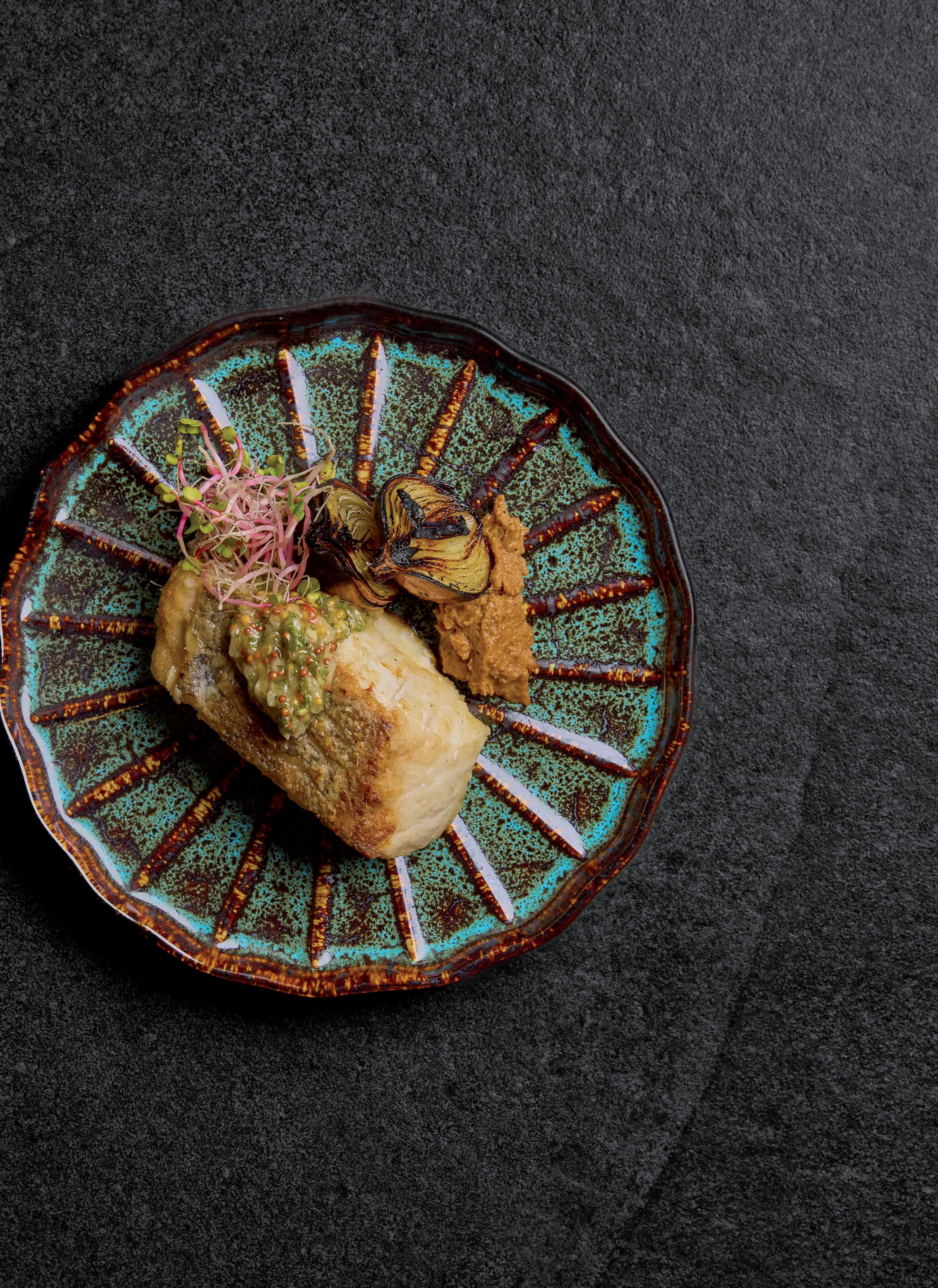
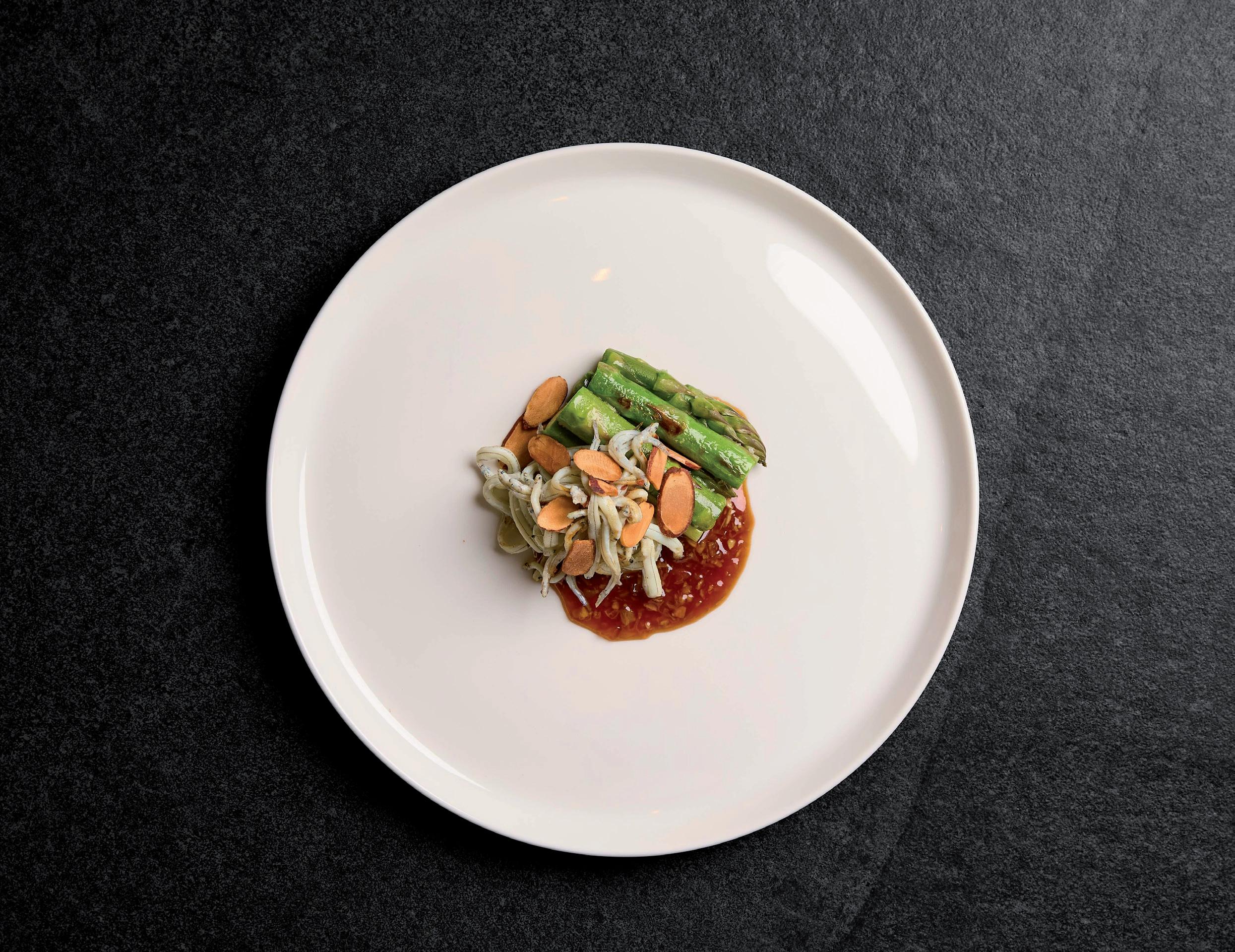
Continued from pg. 36
The beverage menu leans heavily on unique and interesting offerings, largely originating from Japan.
A distinctive new addition to Auckland’s dining scene, Kureta’s menu offers epicurean delights from New Zealand’s southern oceans to the rich flavours of the volcanic land’s with each dish paying homage to nature’s elegance, and fusing local ingredients with traditional Japanese techniques. With a capacity of up to 30 guests, Kureta is designed to accommodate both intimate diners and larger groups, with guests invited to a shared elemental table where each dish tells a story crafted with precision and passion.
“We’re proud to introduce Kureta to JW Marriott Auckland’s dining portfolio. A place where Japanese

craftsmanship meets New Zealand’s exceptional local produce,” said Girish Talreja, General Manager, JW Marriott Auckland.
“Guests can expect an elevated dining experience defined by authenticity and a deep respect for both nature and flavour.”
From a design perspective, Kureta reflects Japanese craftsmanship and natural simplicity using materials such as burnt timber (yakisugi), hammered bronze, and distressed leather to evoke a tactile, elemental feel. The design balances raw textures with refined finishes, creating a space that feels intimate, atmospheric, and artisanal. Kureta is a physical extension of this culinary philosophy, evident in the use of materials that evoke fire, earth, and water elements such as charred timber, stone, and metal. l
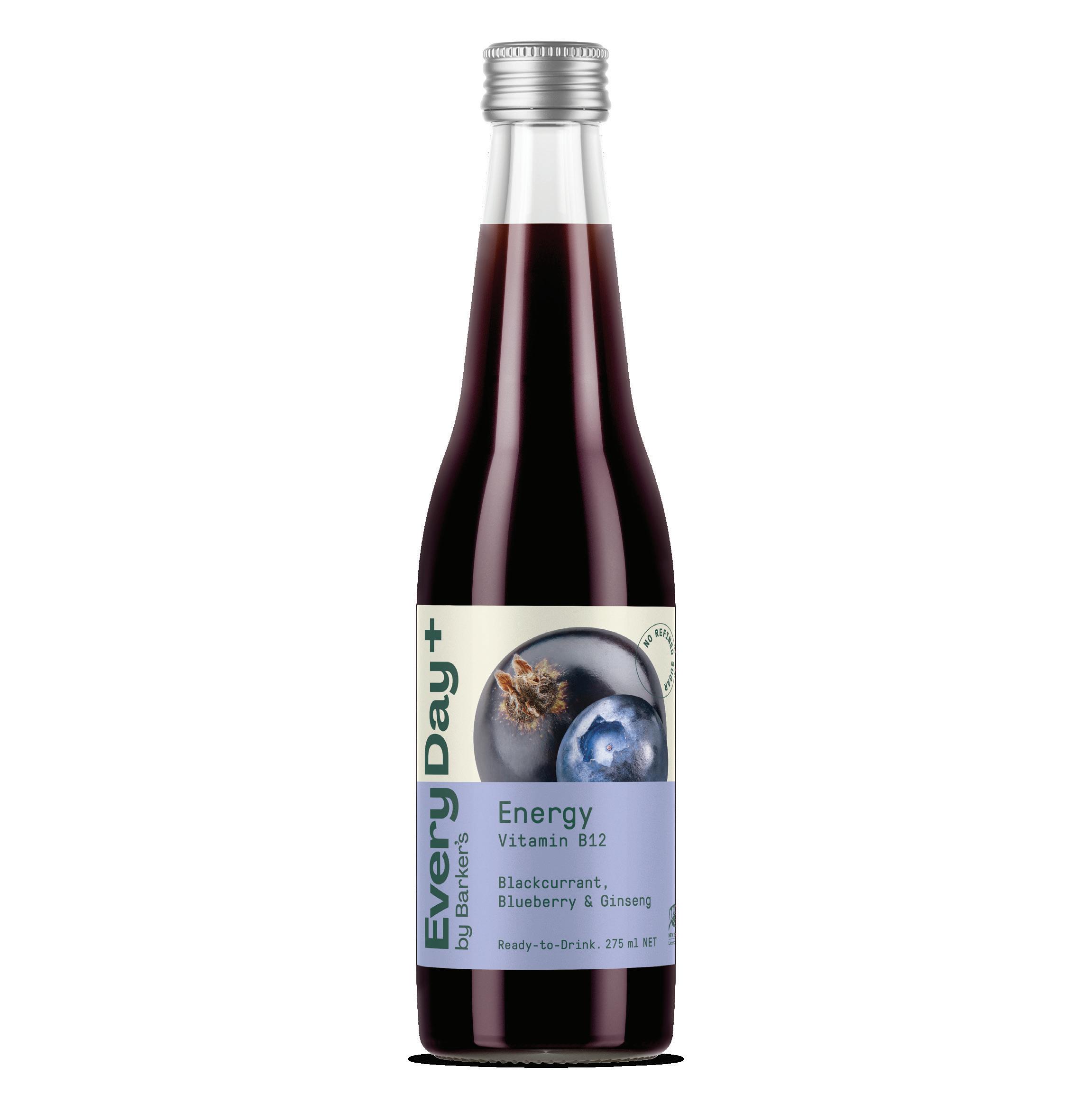


Two of New Zealand’s most iconic wilderness lodges are on the market, offered individually or as a combined freehold portfolio.
Wilderness Lodge
Arthur’s Pass, set on 14 hectares within Cora Lynn Station, offers 24 guest rooms, a restaurant and panoramic alpine views amid a working high-country sheep farm. Diversification opportunities include honey, carbon and eco-tourism ventures.
On the West Coast, Wilderness Lodge Lake Moeraki occupies 4.25 hectares beside the Moeraki River, surrounded by World Heritage rainforest. Its 28 eco-luxury rooms blend comfort, fine dining and immersive nature experiences.
Tourism Properties Principal Adrian Chisholm said the lodges’ sale is “exceptionally rare, combining location, reputation and sustainability.”
Together they represent one of New Zealand’s most compelling tourism investments, offering scale, authenticity and enduring appeal in two spectacular South Island wilderness settings.
For more information:
ADRIAN CHISHOLM
Principal
Tourism, Hospitality & Leisure
Business Broker
HEAD OFFICE:
Queenstown & Central Otago
INTERNATIONAL: +64 21 727 888
NZ Mobile: 021 727 888 adrian@tourismproperties.com



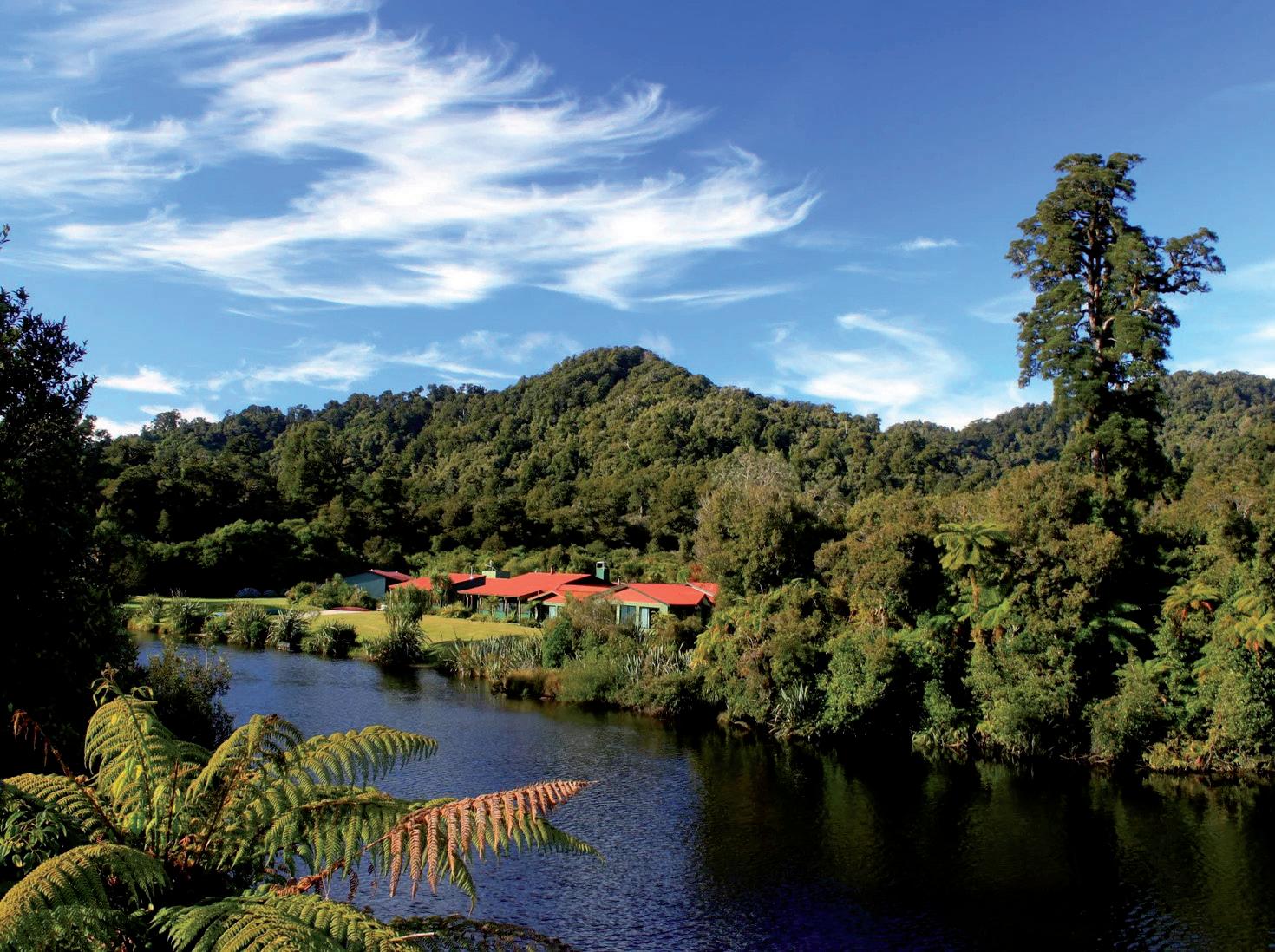



Boutique Accommodation Business for Sale Nelson. Presenting a singular opportunity: The Hardy Street School House - An icon of luxury and heritage.
This is a unique chance to acquire not just a property, but a successful business in the heart of Nelson. On offer is the freehold interests in the land, building, and business that epitomizes luxury and convenience. Recently undergone a meticulous renovation completed in 2023, the Hardy Street School House blends historical grandeur with contemporary sophistication. Utilizing only the finest materials, the property has been transformed into a stunning embodiment of highend luxury while respecting its rich heritage, dating back to 1860 as one of Nelson's oldest standing buildings. The property boasts two opulent self-catering apartments, versatile in their offering. They can be

configured as two separate units with two and four bedrooms respectively or combined into a grand six-bedrooms, each bedroom complete with its own ensuite. This flexibility makes it perfect for hosting individual guests or larger groups seeking a luxurious stay.
Each apartment comes with secure bike storage, ideal for adventurers looking to explore the region's renowned mountain biking trails. Additionally, guests can enjoy a serene private decked courtyard and the convenience of four off-street parking spaces.
Set up as the perfect gateway for exploring the beautiful Nelson Tasman region, whether it's adventure, exploration, or simple leisure, the Hardy Street School
House caters to all desires. Engage in the exclusive opportunity to own a cornerstone of Nelson's heritage, beautifully transitioned into a modern-day sanctuary that generates great returns. Step into a legacy of luxury at Hardy Street School House.
Asking Price: $2,225,000
For more information: Call Gill Ireland Vining Realty - Bayleys Licensed REAA 2008 Broker Ref: 4005134

FHGC Backpackers Business for Sale Haast West Coast. Several income streams are on offer, with the single level 13-unit motel business being the major income generator and consists of a mix of studios, 1-bedroom and 2-bedroom configurations.
The 32 bed backpackers lodge complements the 13 room motel servicing its guests either going up or down the west coast. The large communal kitchen looks after itself and then across from the main complex, are a further two titles.
One title is on the road frontage and generates an income from 23 campervan sites and up to 10 tent campers alike. Two cabins are an option for travellers to consider. So, heaps of variation here.
With 15+ garages and sheds an extra income stream has developed to charge for storage.
Two options present themselves for your owners' residence as you may chose the three-bedroom house with its open plan living within walking distance of the
reception/office/shop. Or maybe the two-bedroom managers unit attached to the office complex.
This property for sale of the land, buildings and business could all be yours and offers the varied business types. Also is a lifestyle that would suit many who want to keep their hand in with fishing and hunting, which is on your doorstep!
The vision will be different for all who look at this opportunity. With three titles, (1.53 hectares), the next ownership will have the option to shape the future of this wonderful motel property.
Please be aware that some of this information may have been sourced from RPNZ/ Property Guru/ Land Information New Zealand and we have not been able to verify the accuracy of same.
Some details of this listing are confidential and can only be disclosed upon completion of a confidentiality agreement, included in the Information Memorandum available on our website.
Asking Price: $3,700,000
For more information: Call Derek Johnson Coffeys Tourism Property Brokers Ltd
Licensed REAA 2008 Broker Ref: WC828


